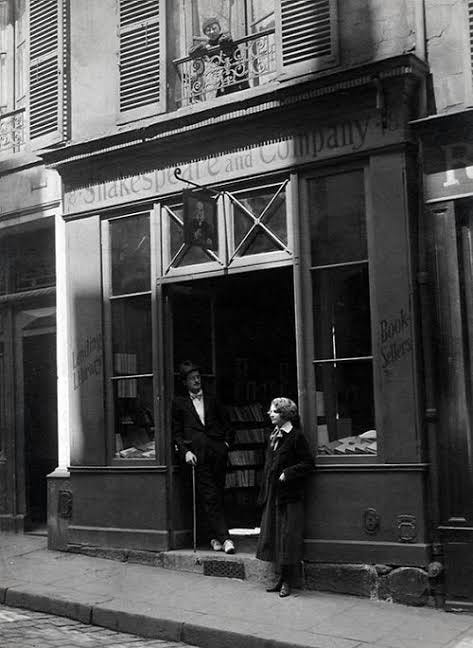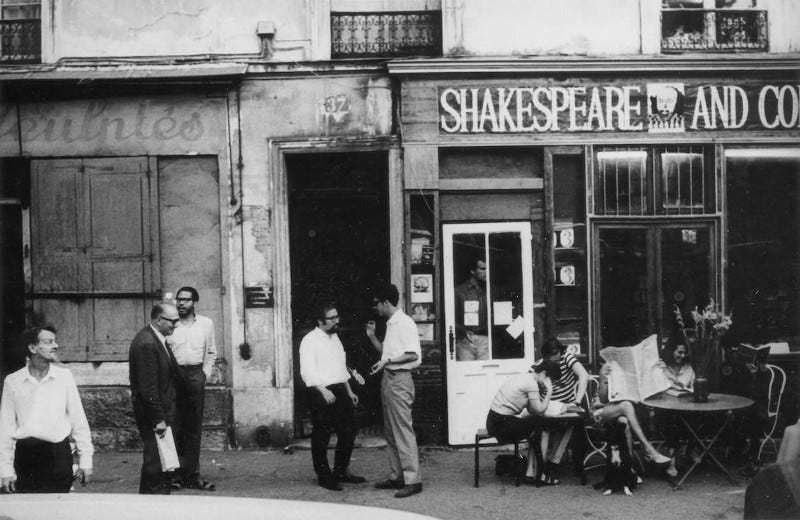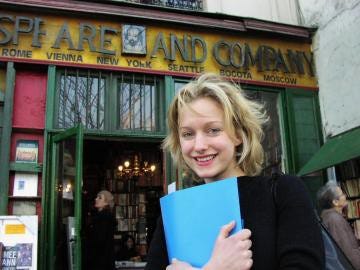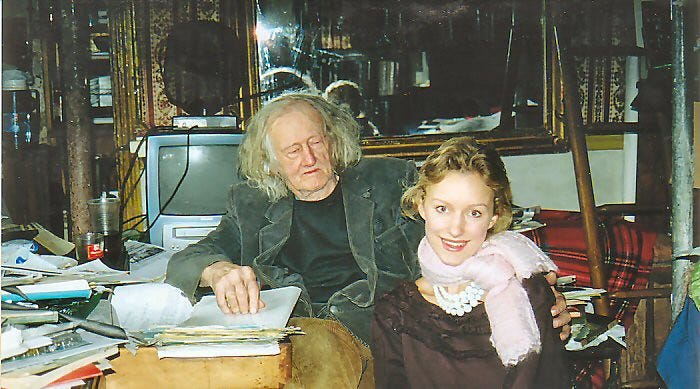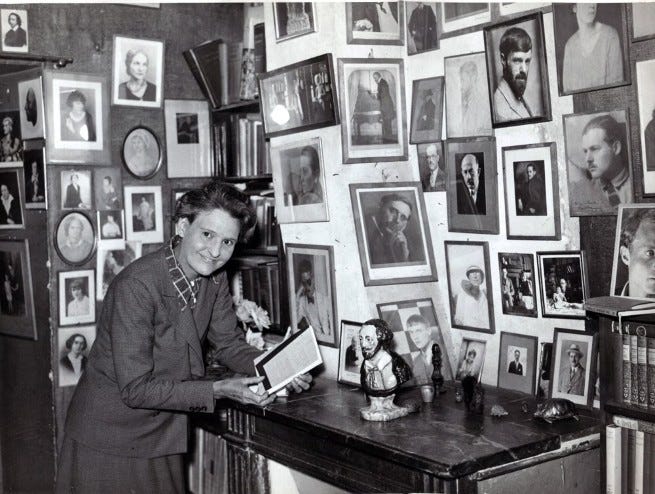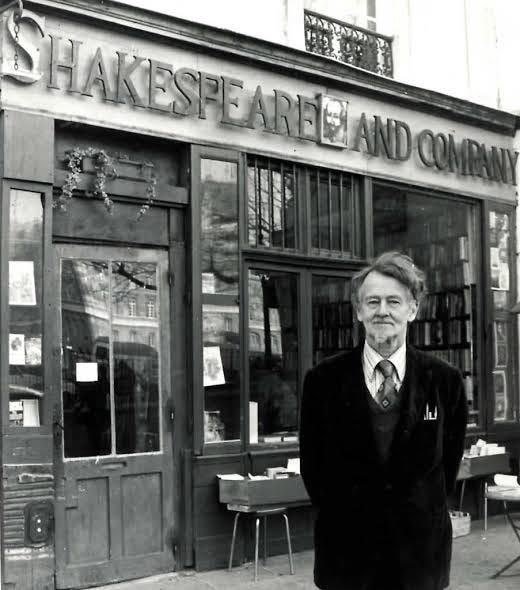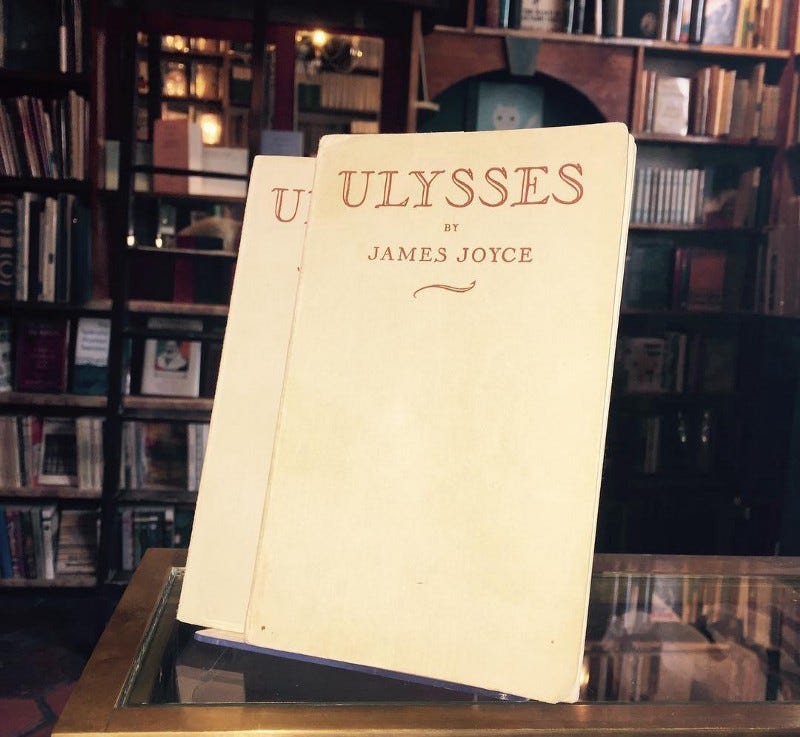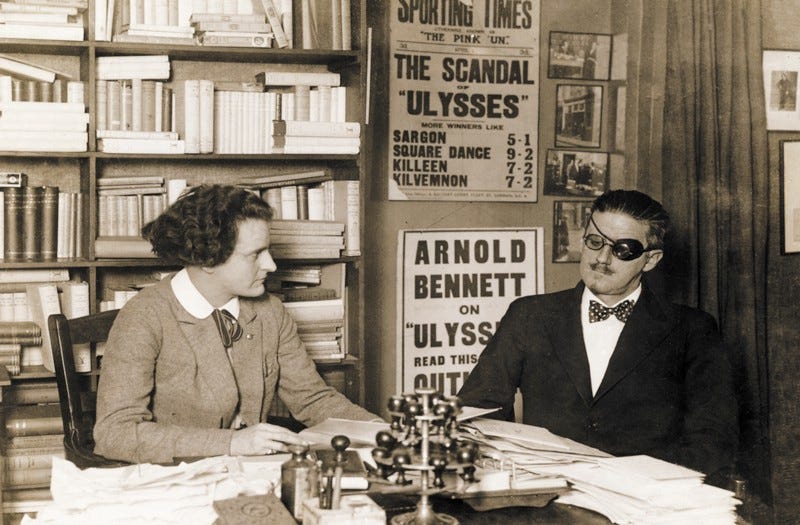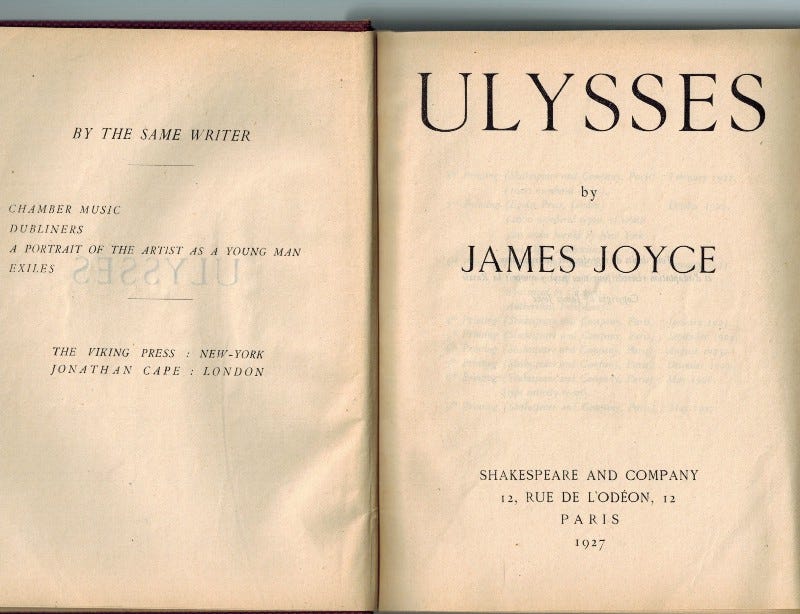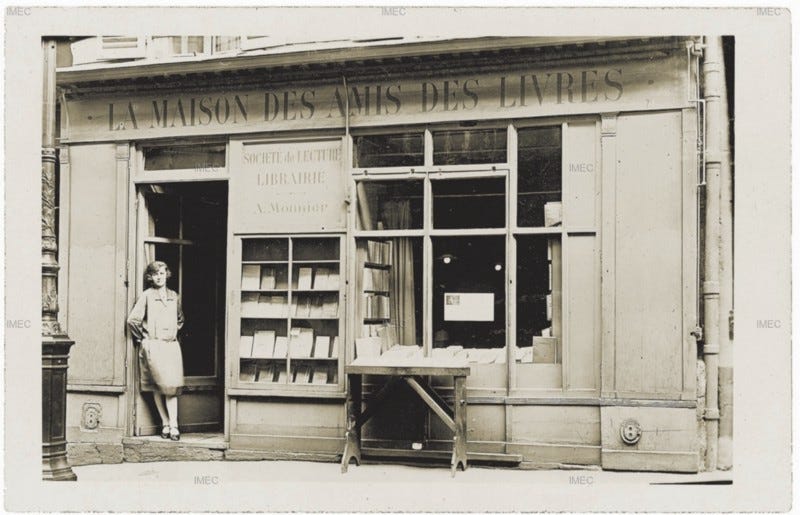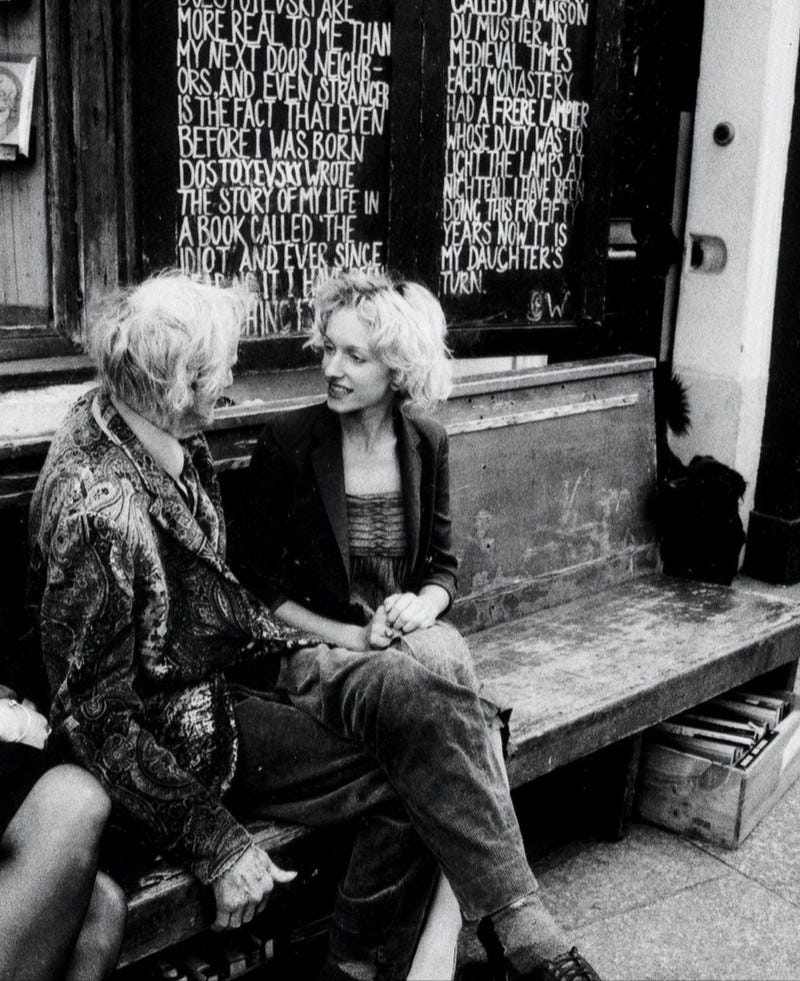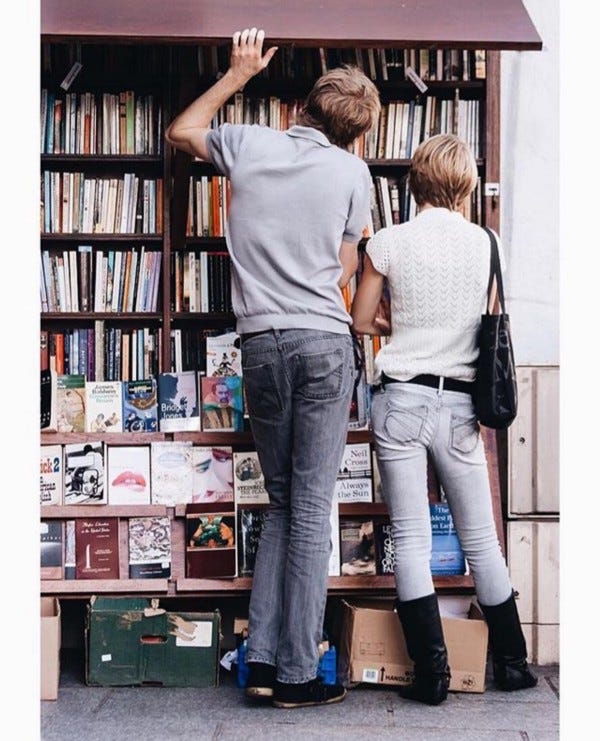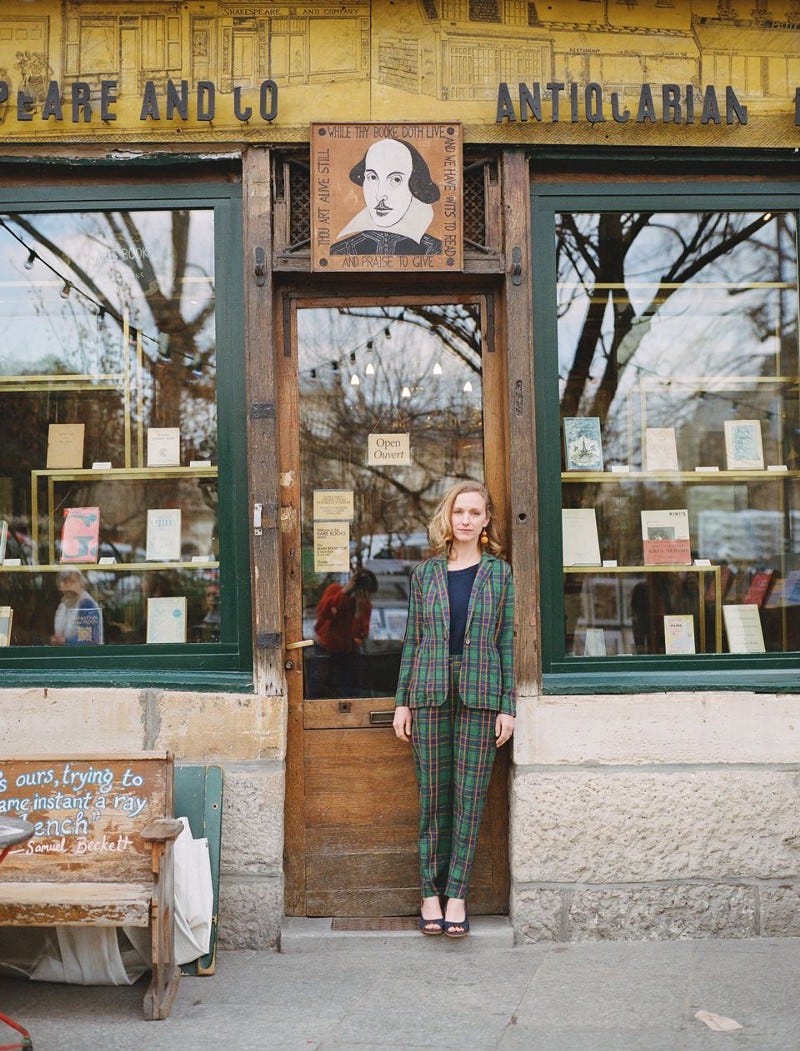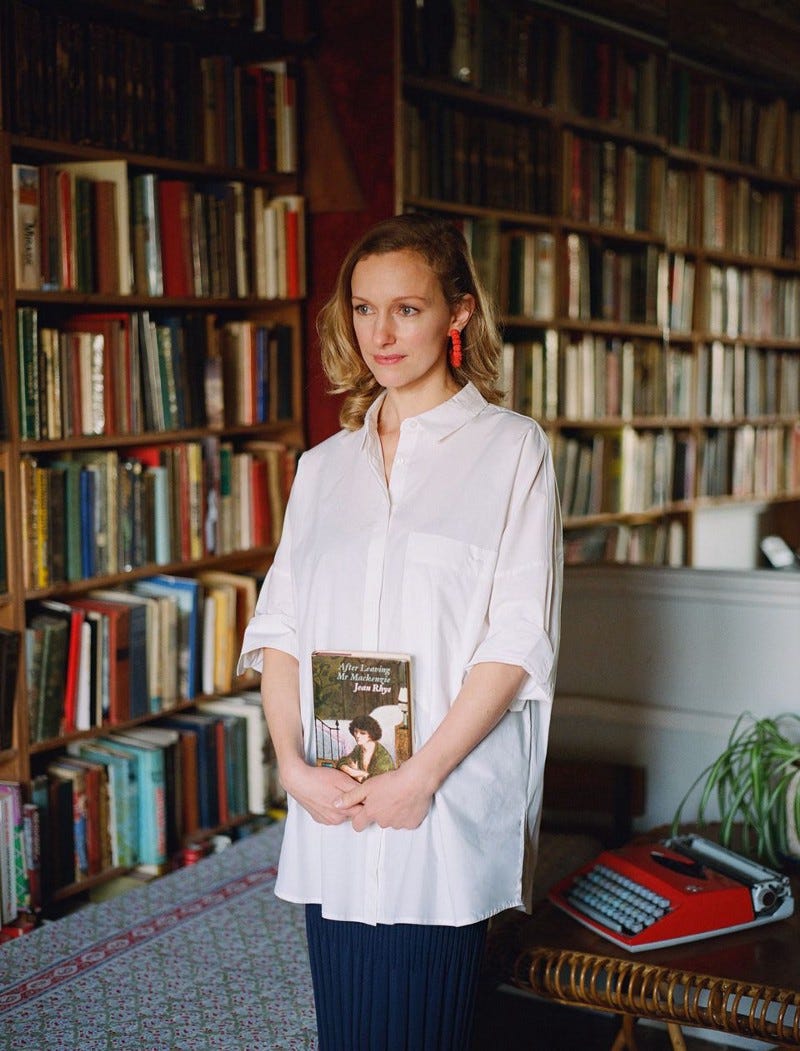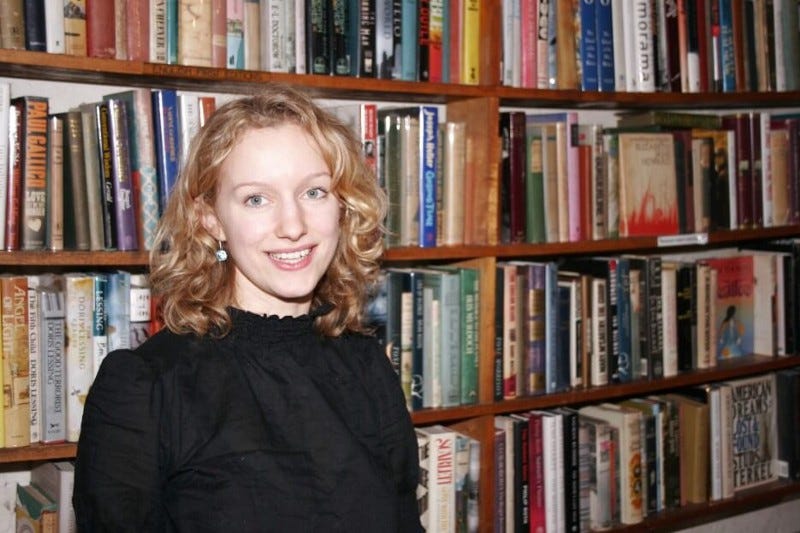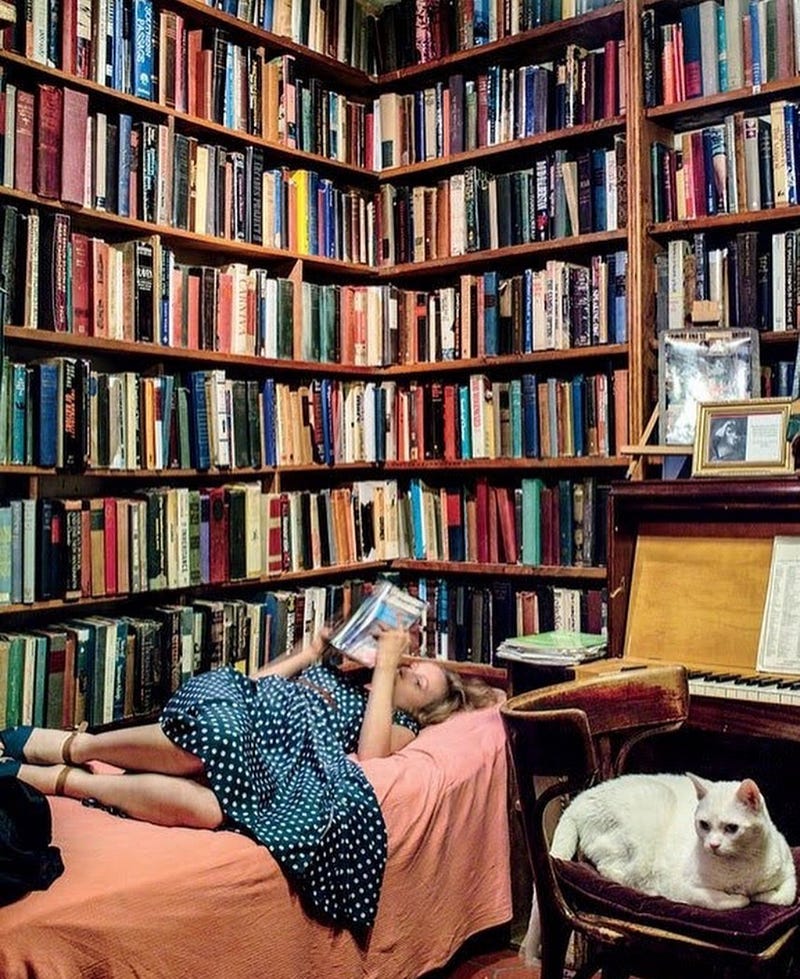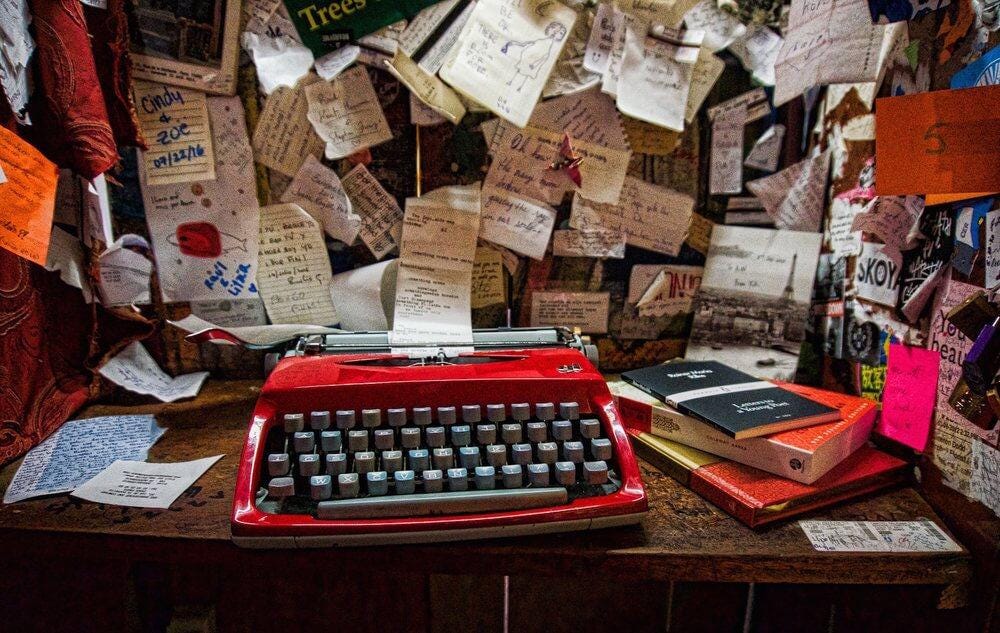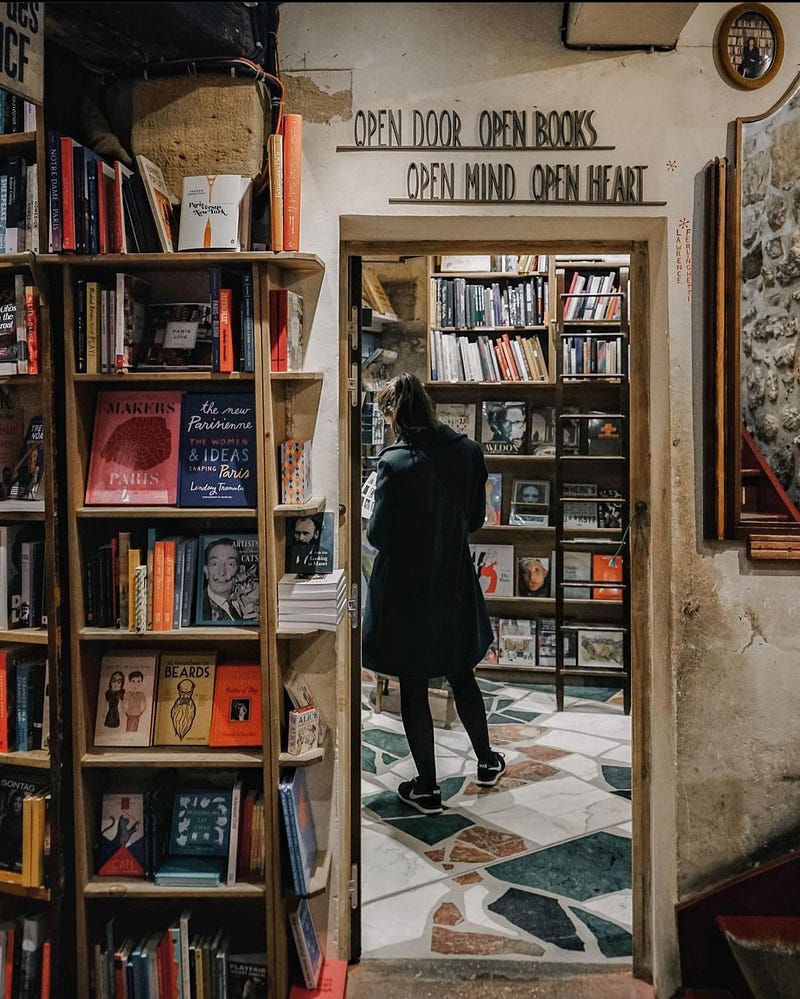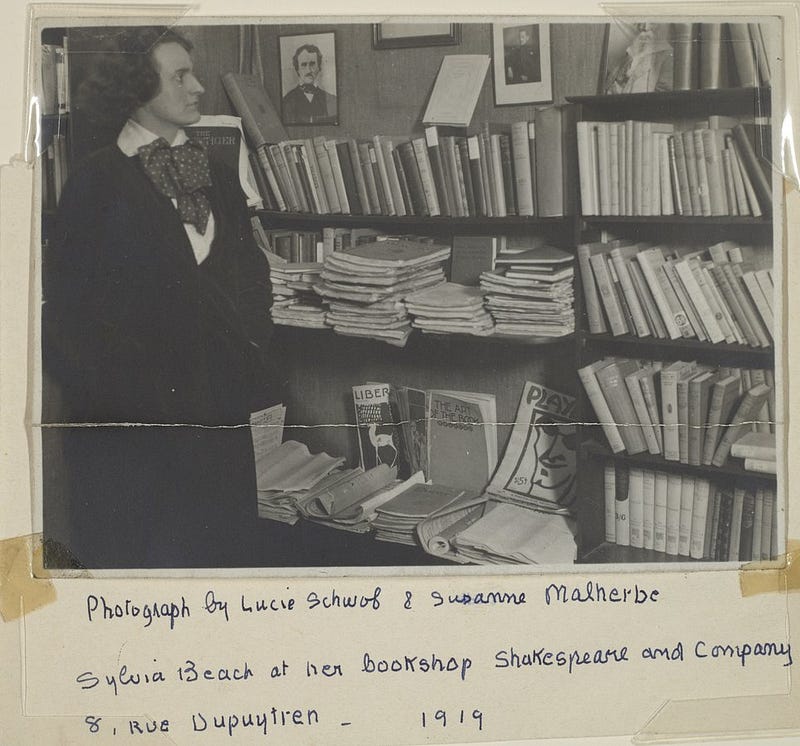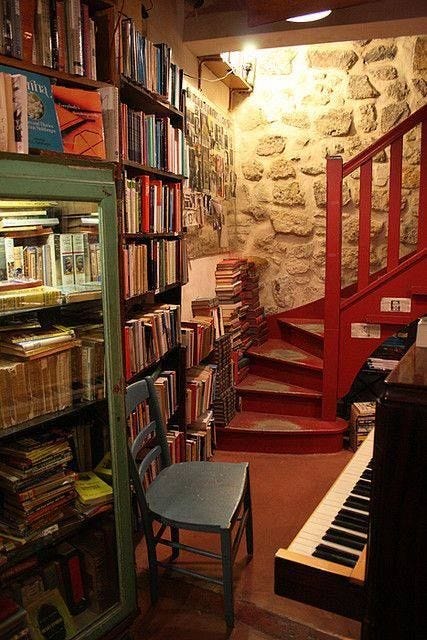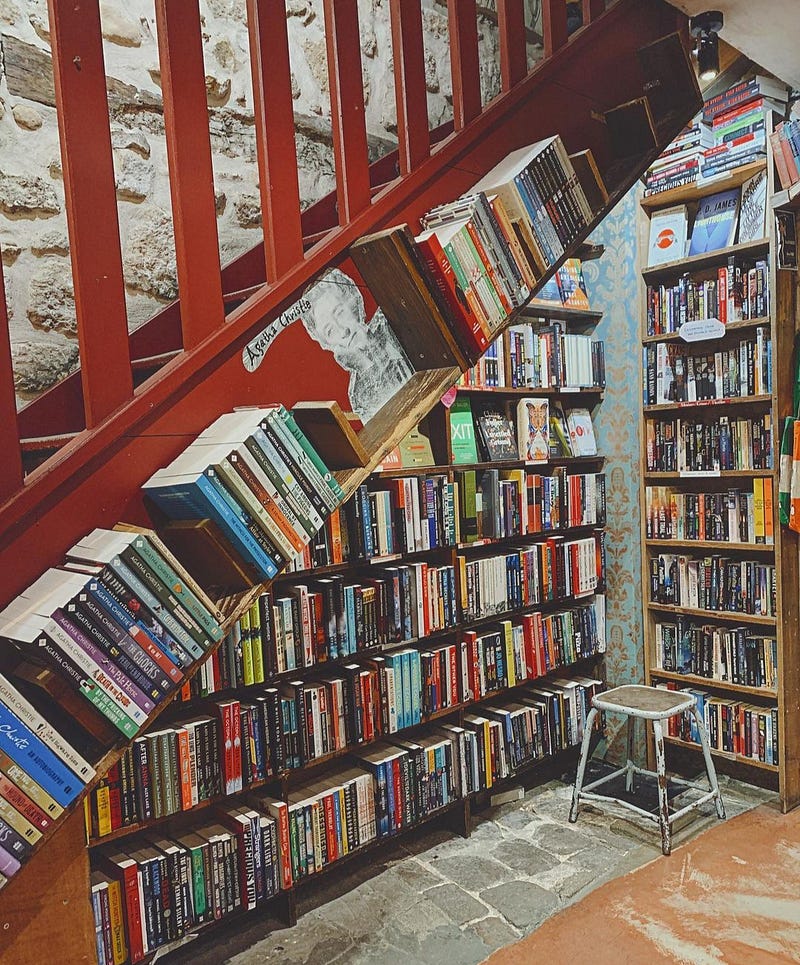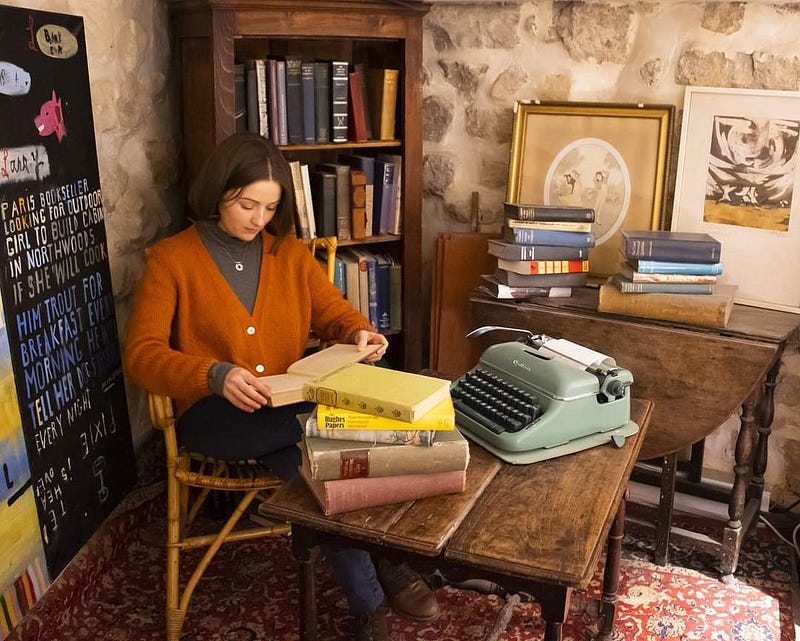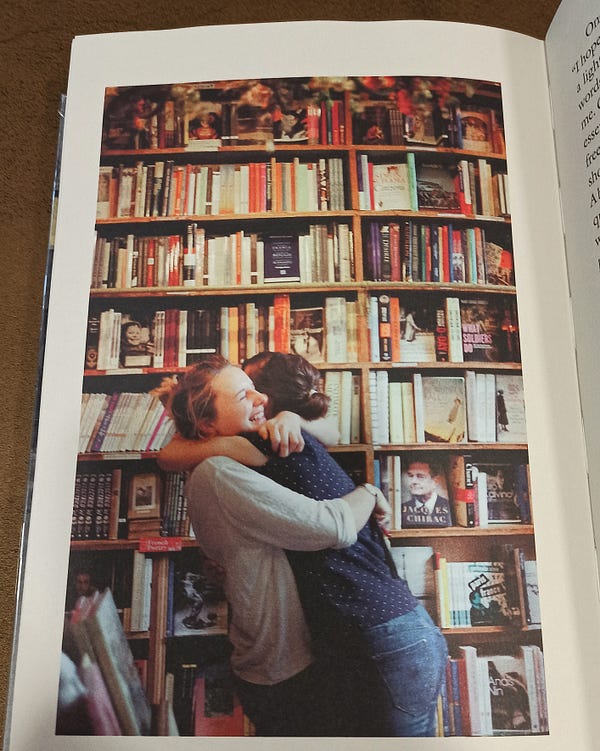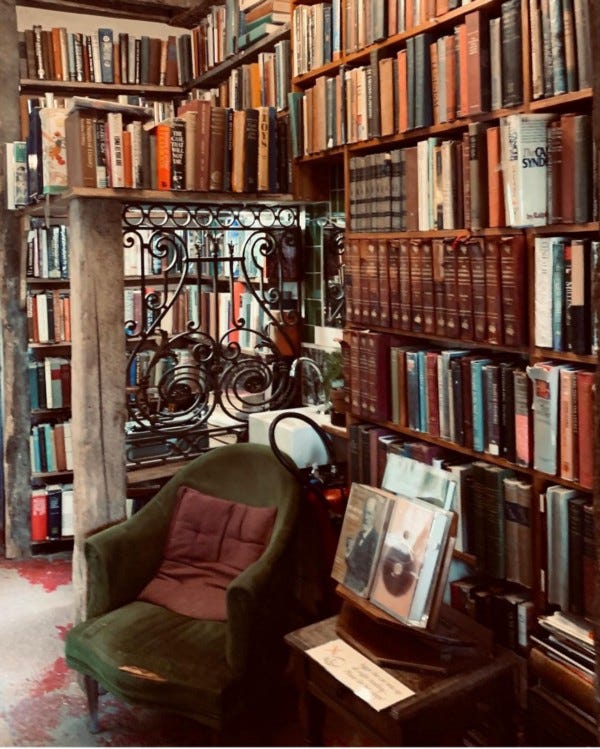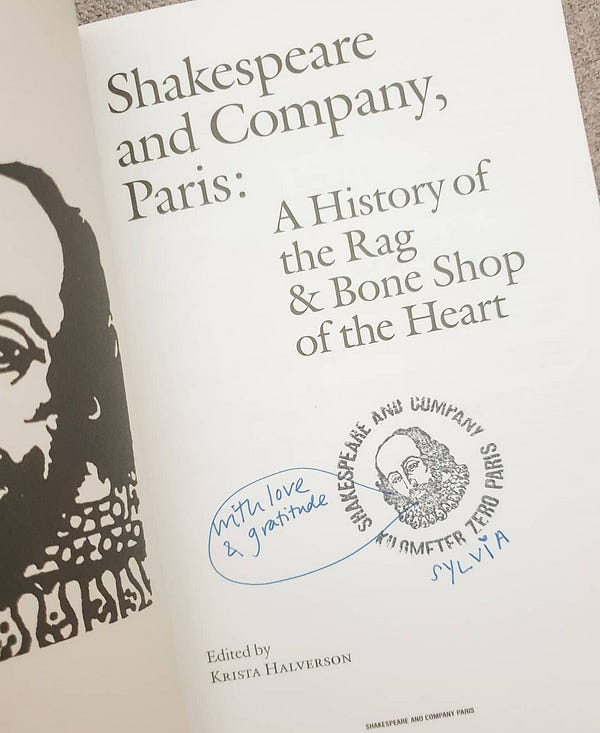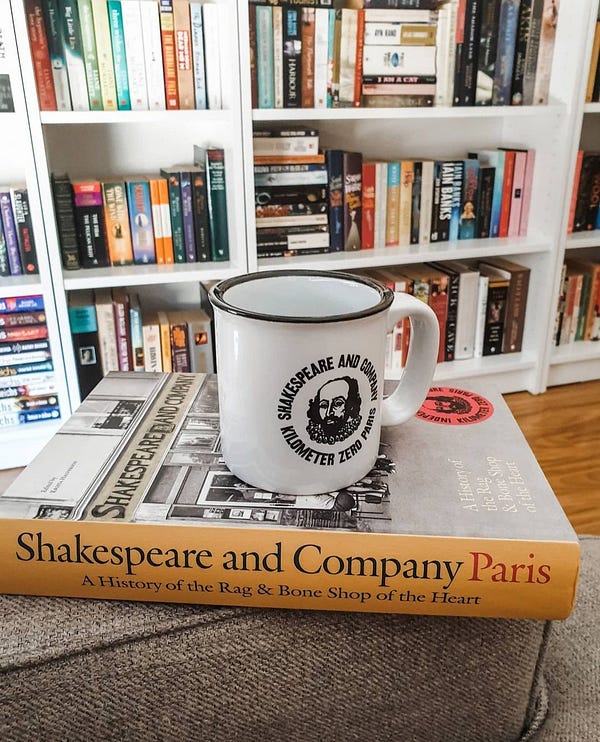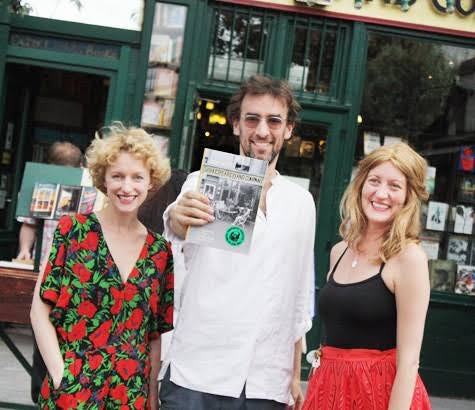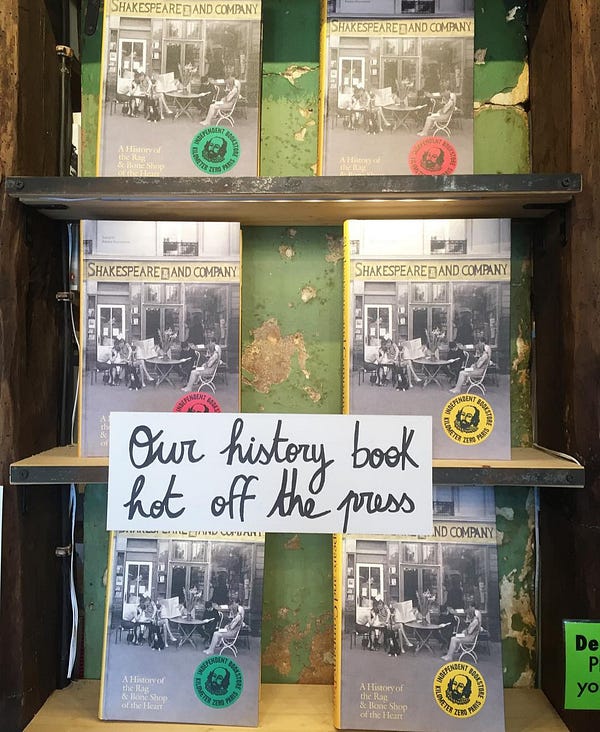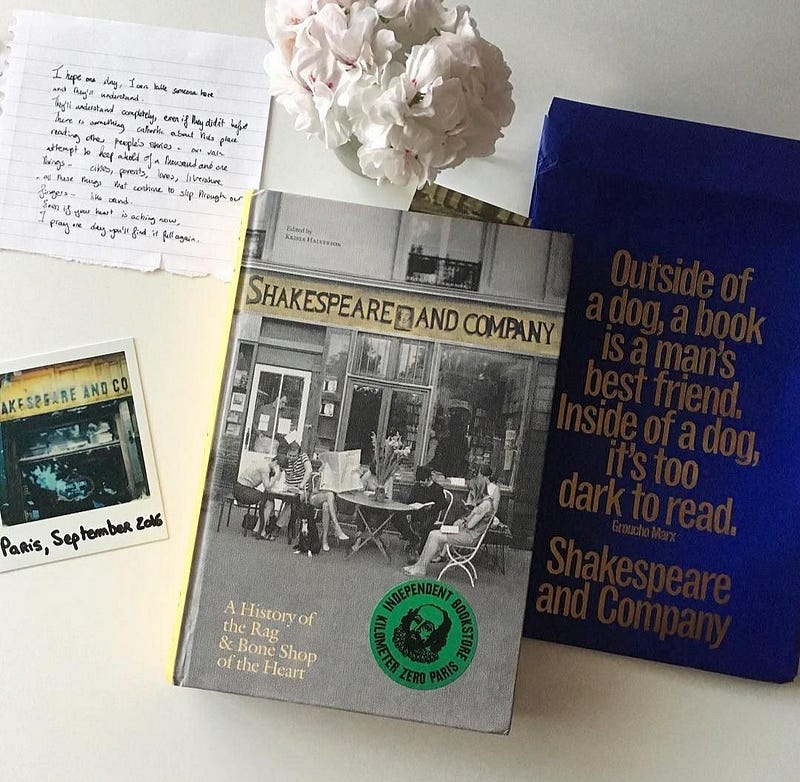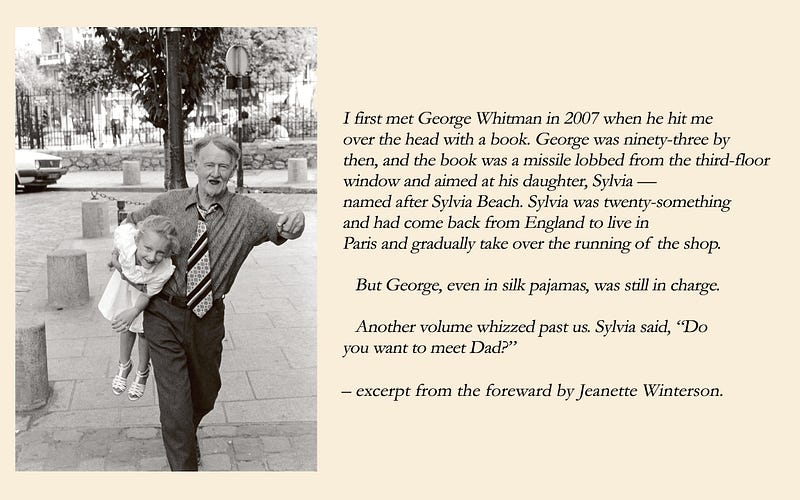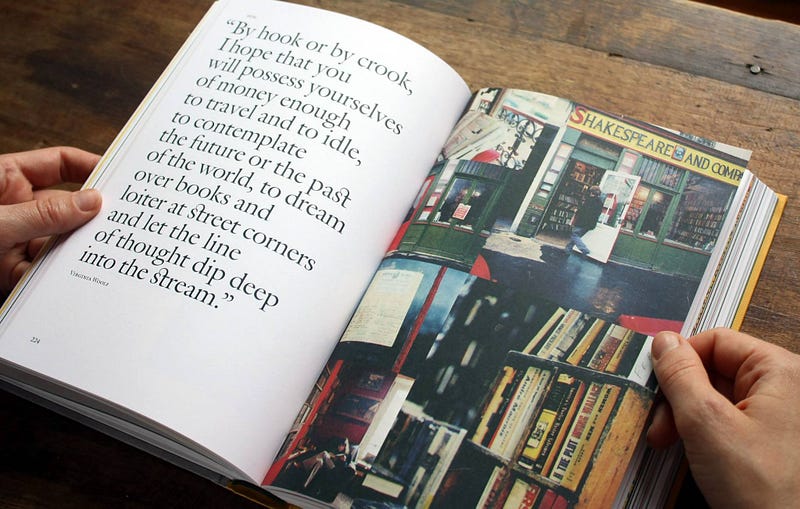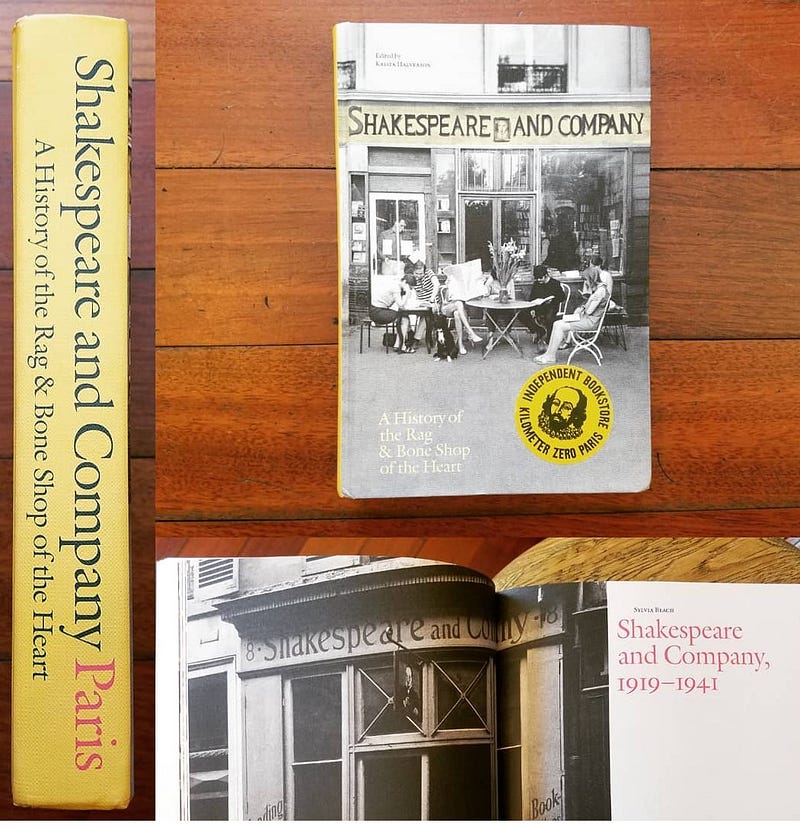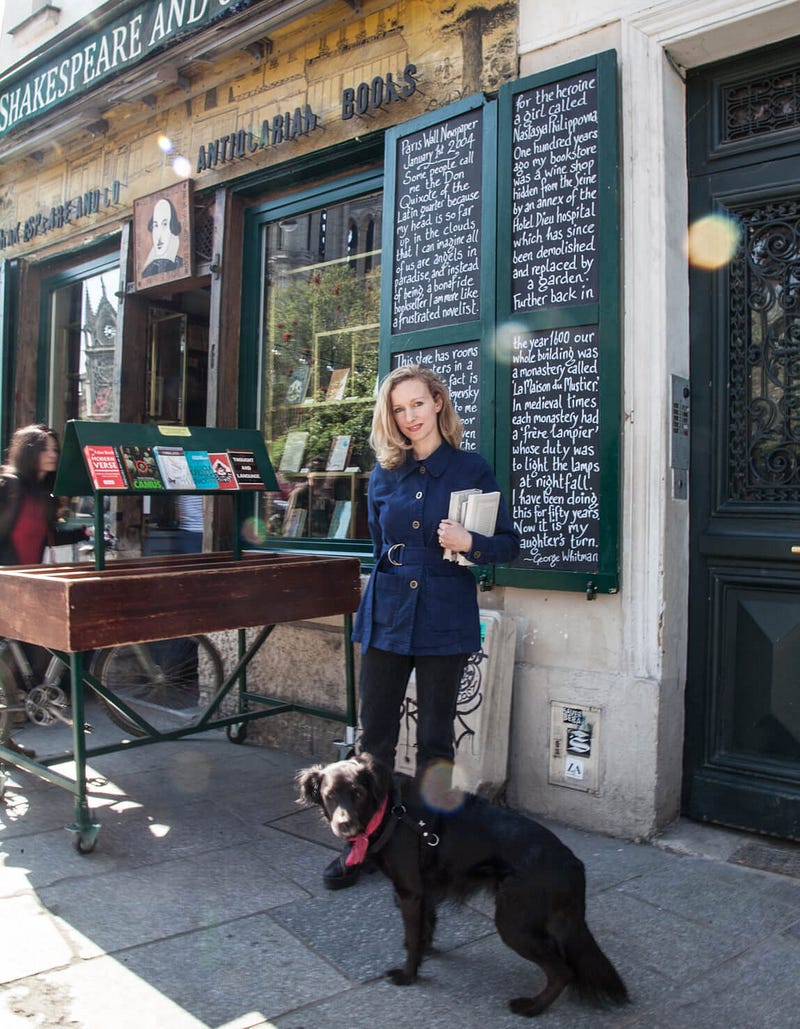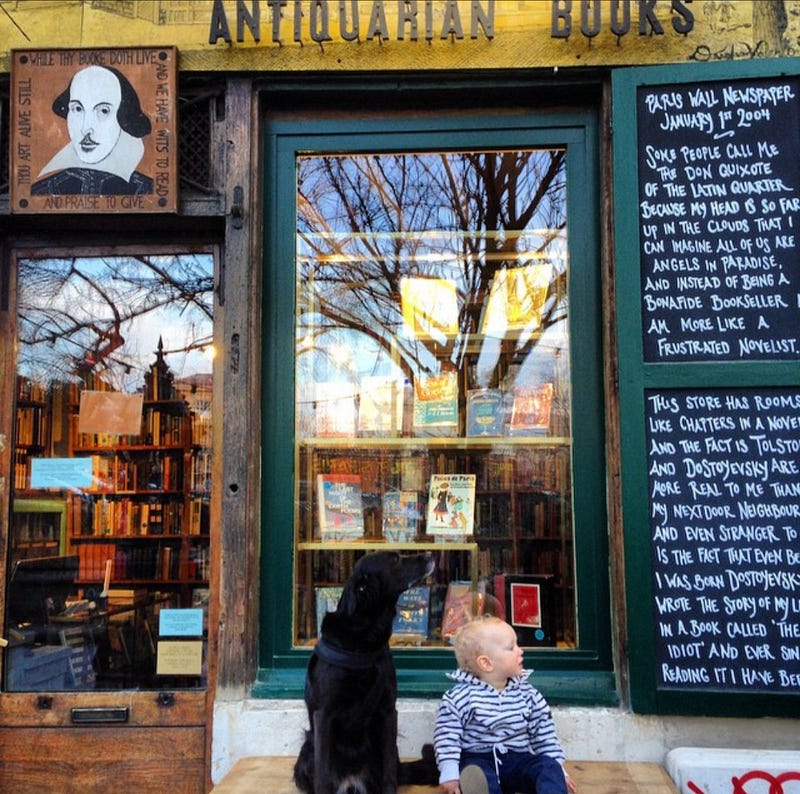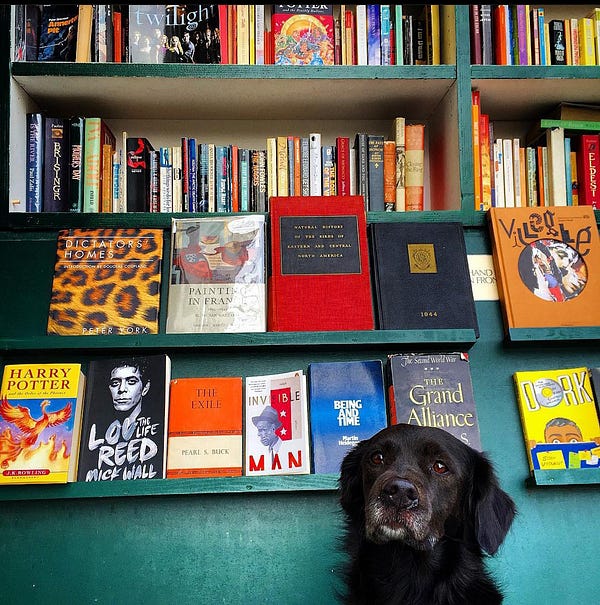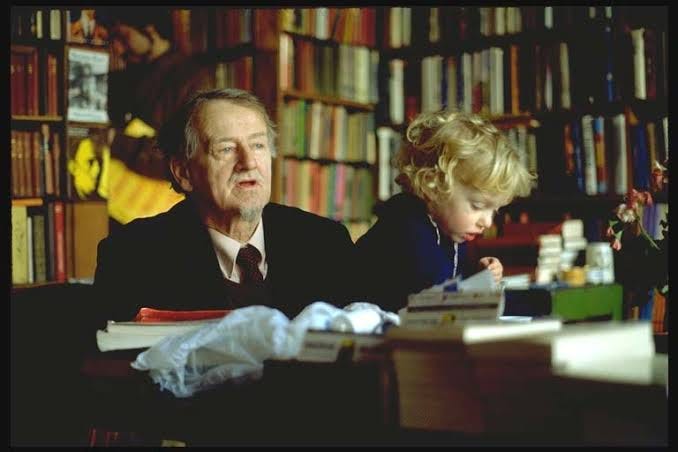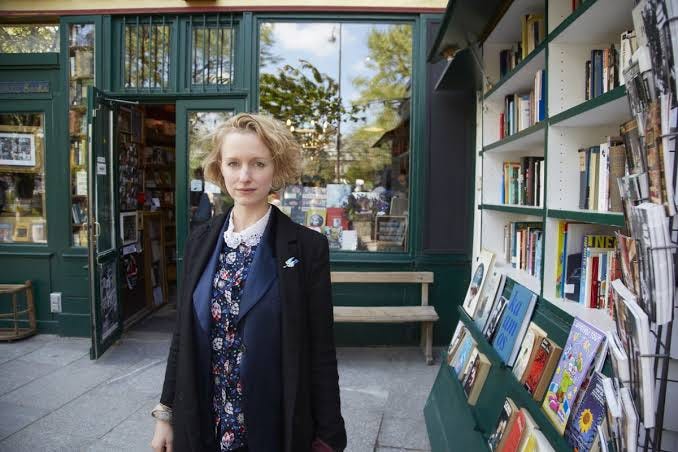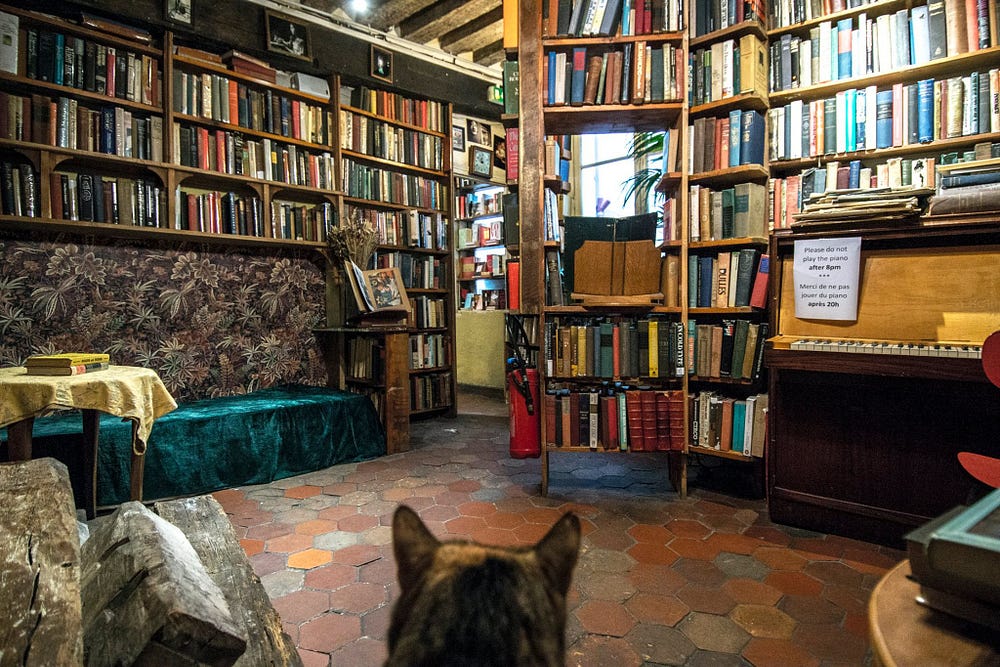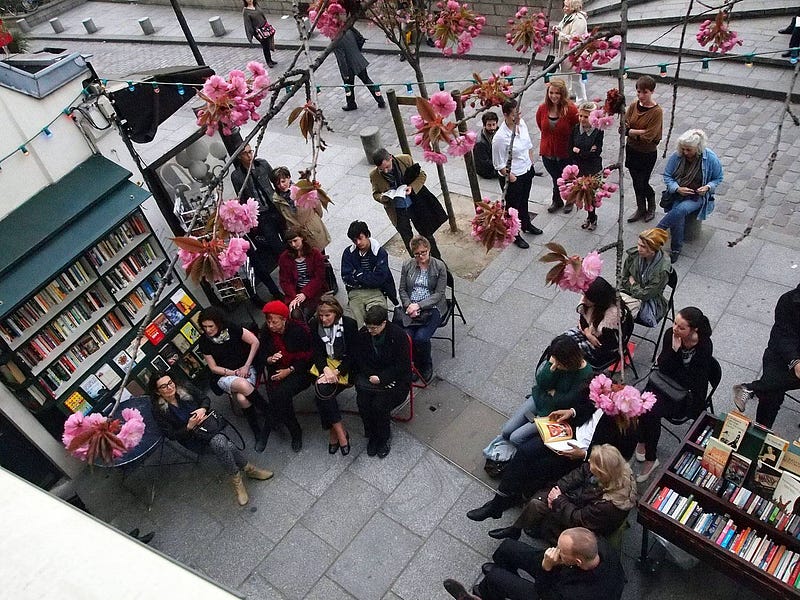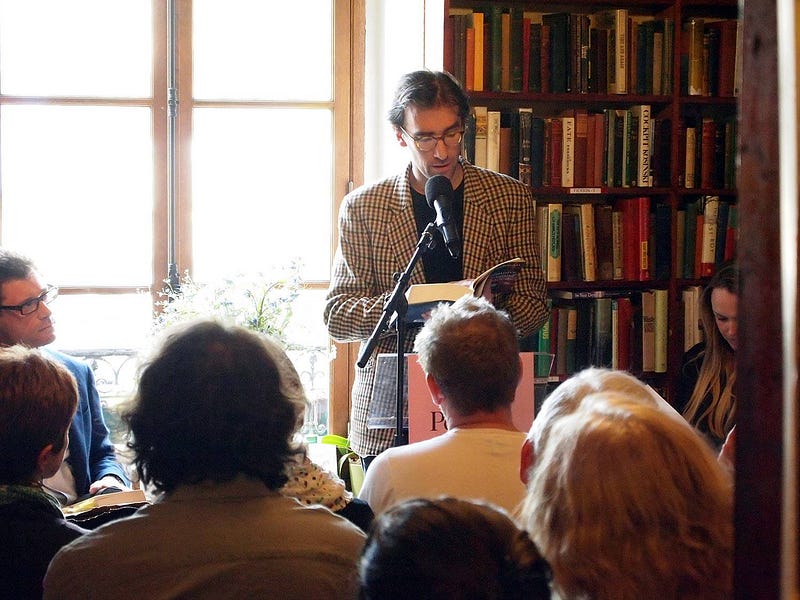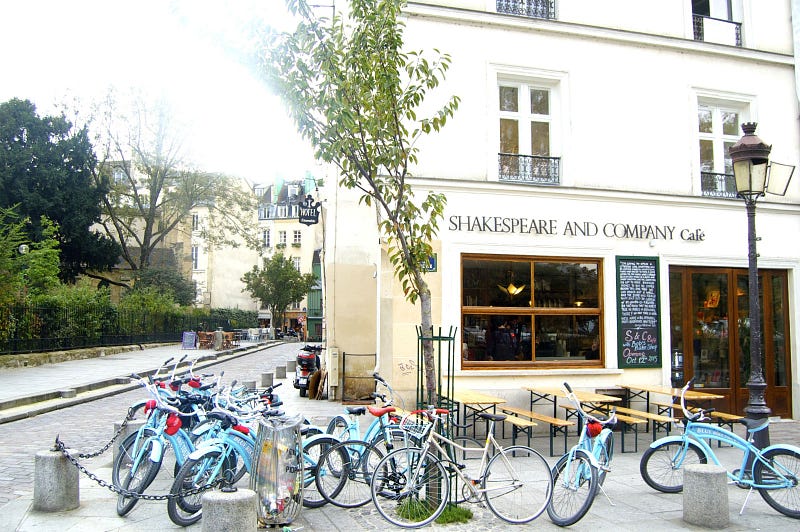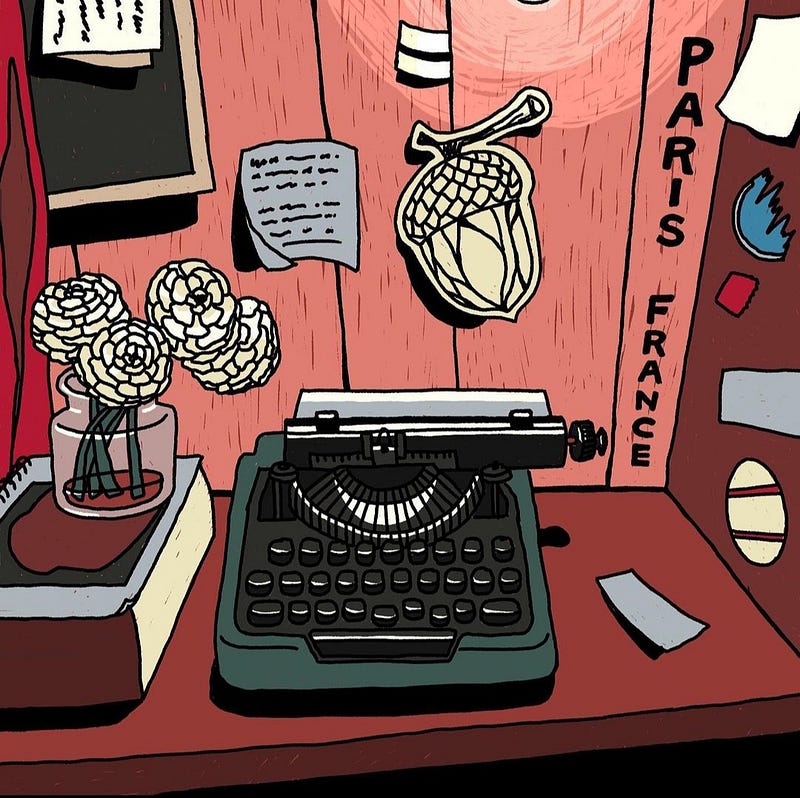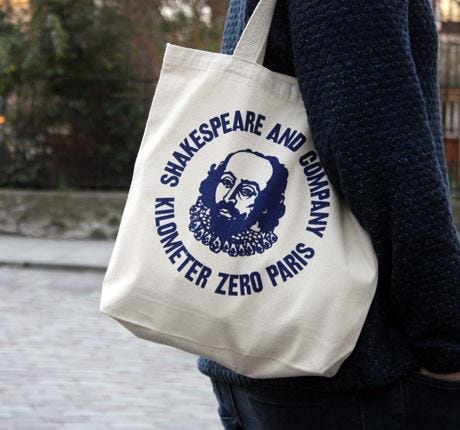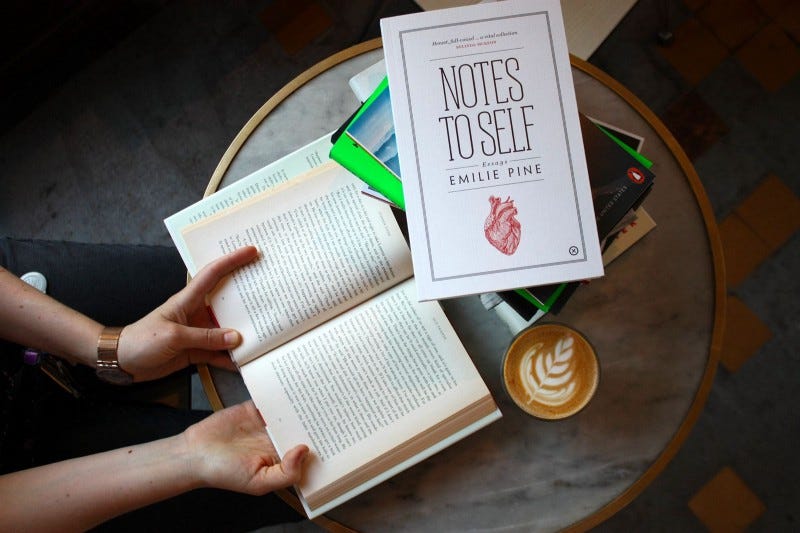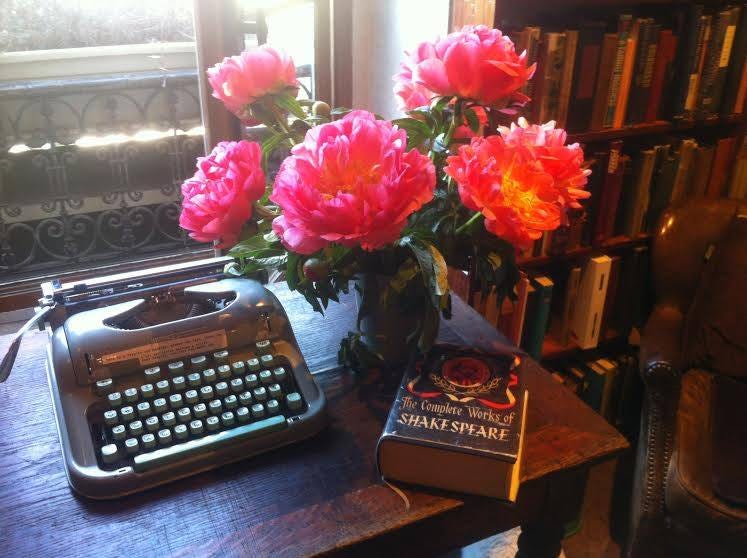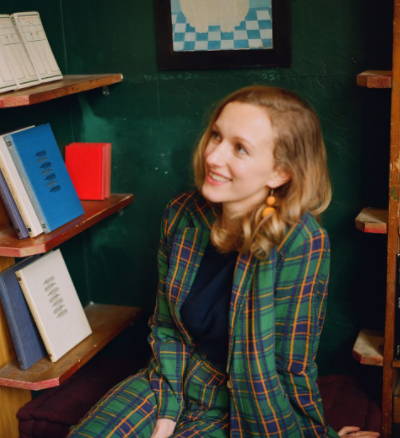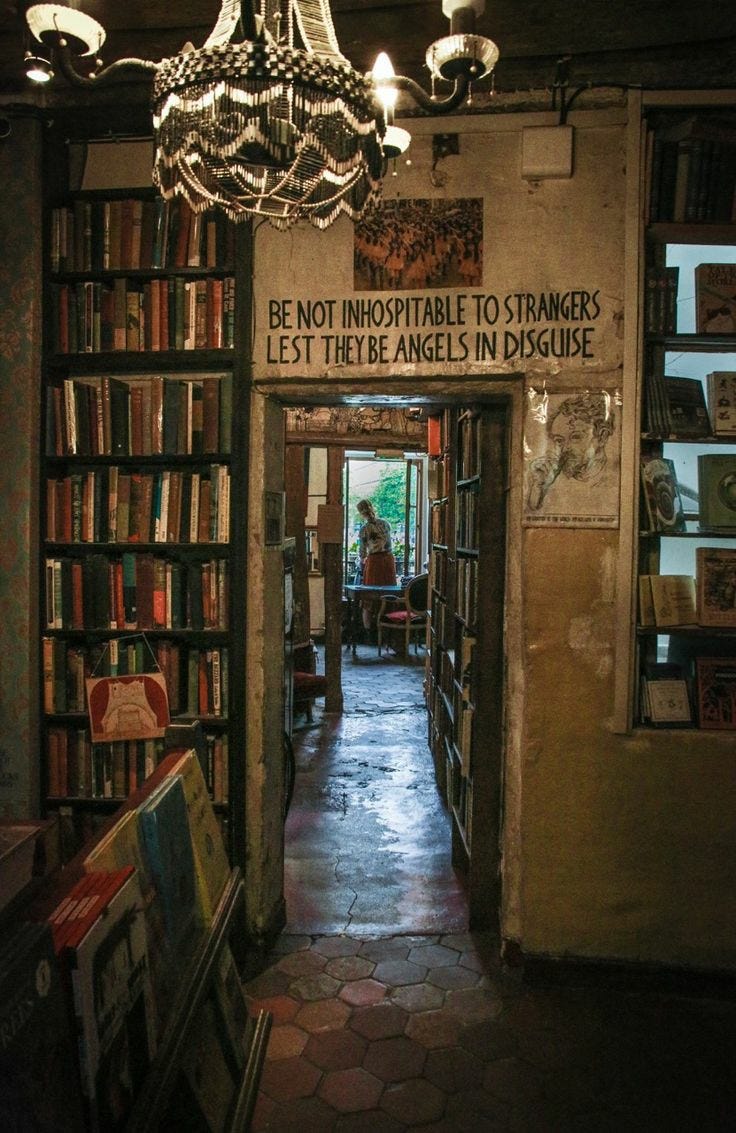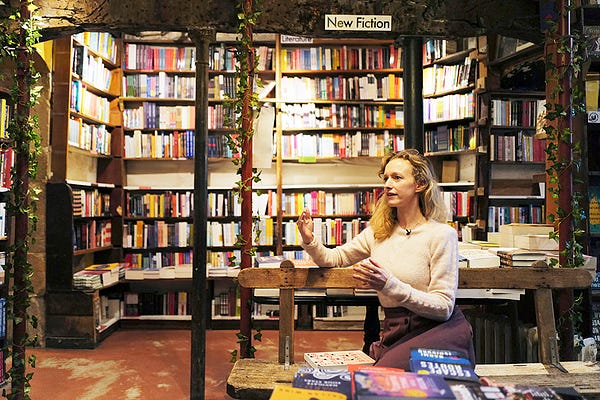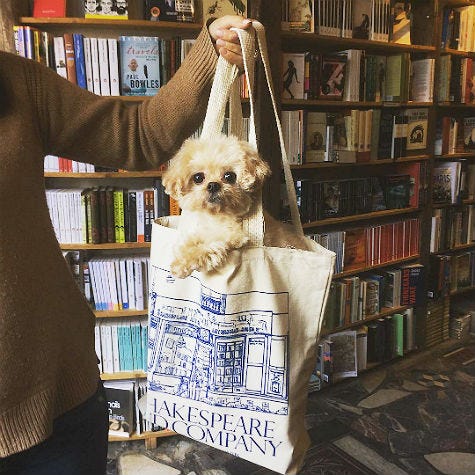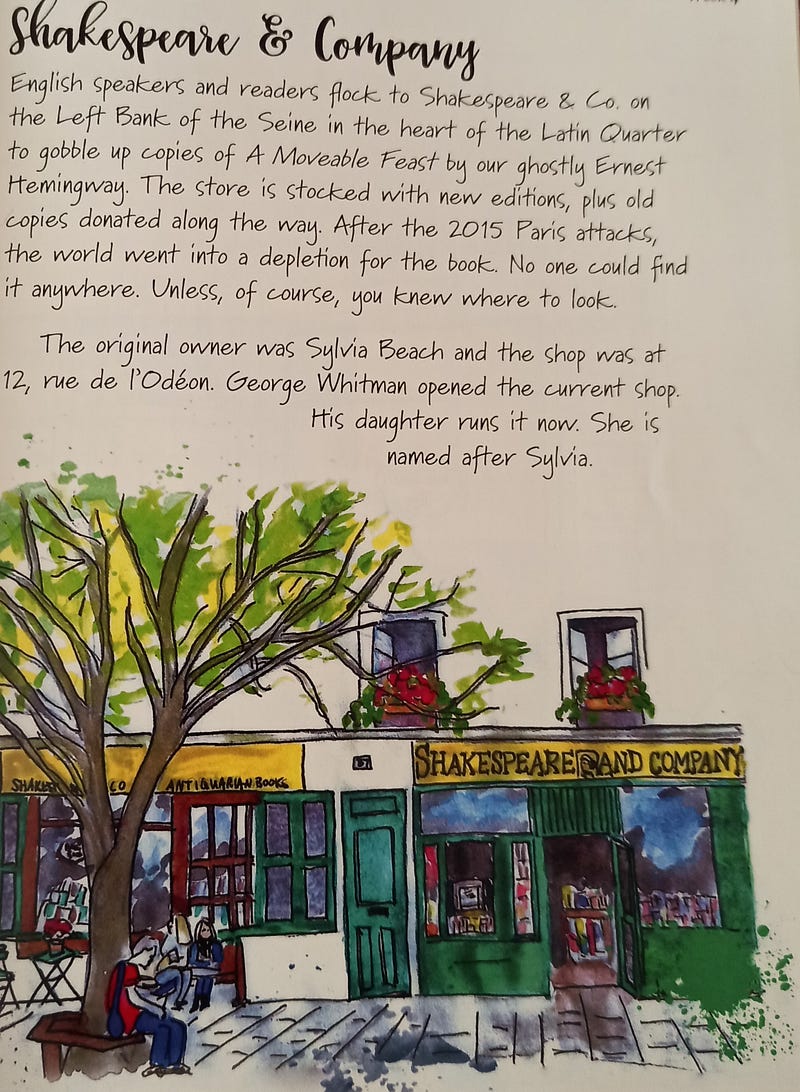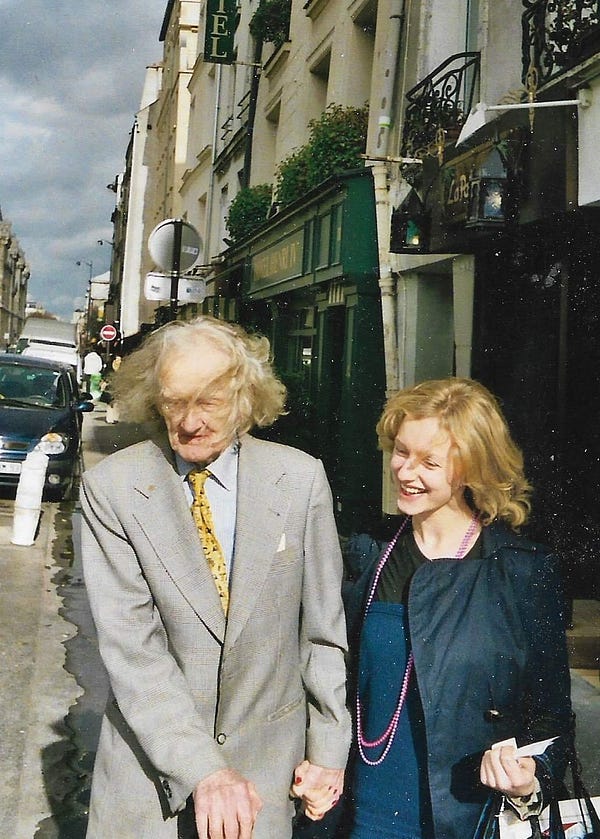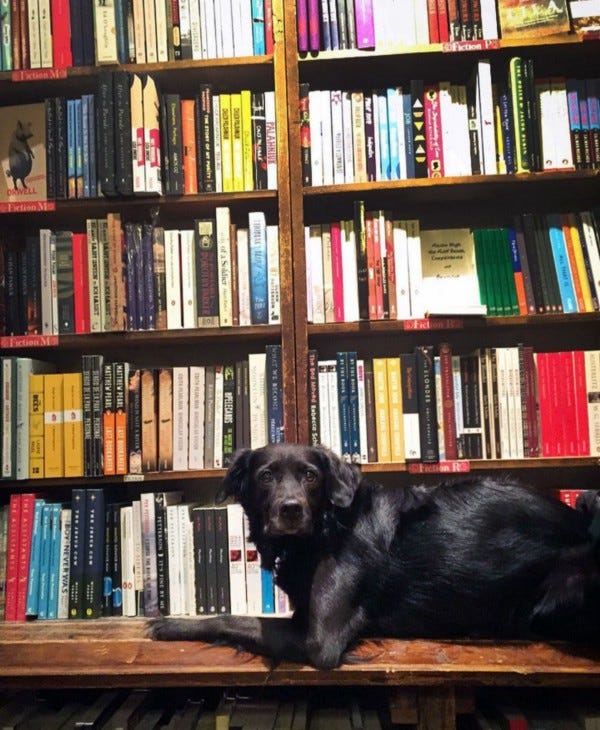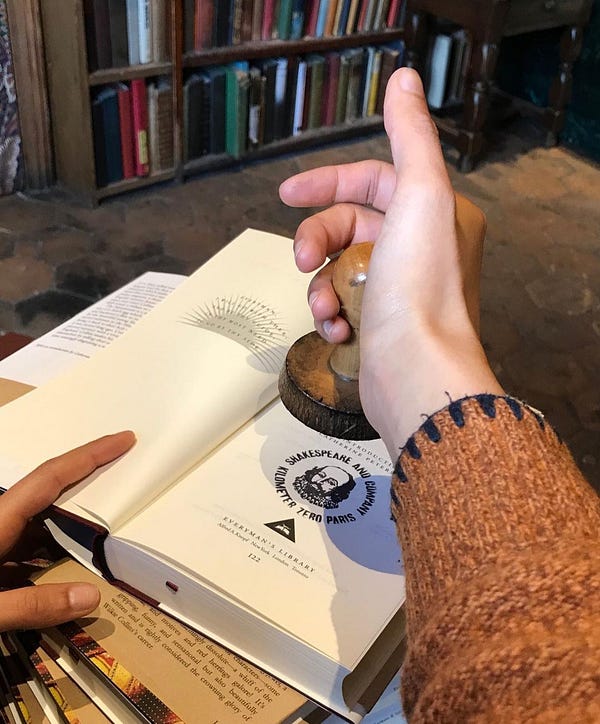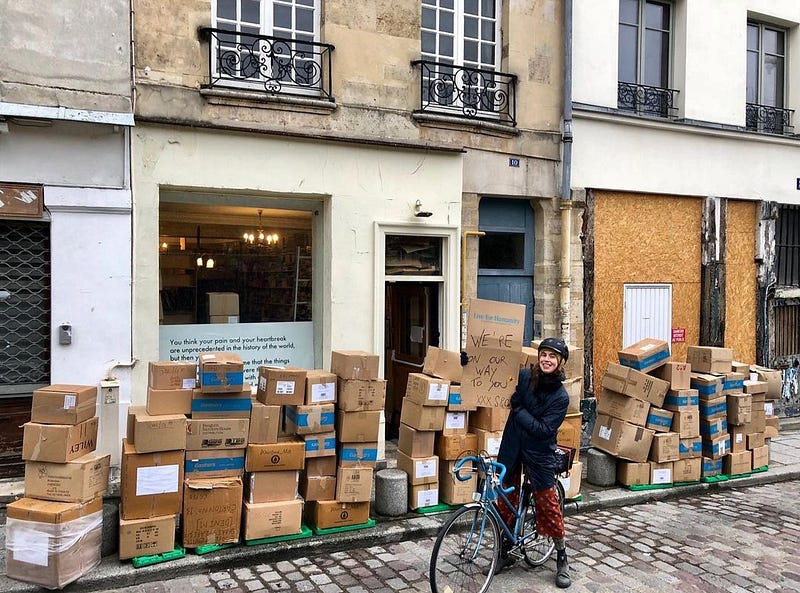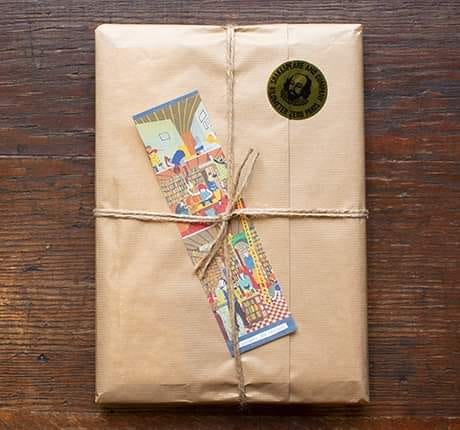Shakespeare & Company, Paris : An Interview with Sylvia Whitman
I had a wonderful & insightful conversation and Q&A session with Sylvia about Bookselling Business Ecosystem.
Shakespeare and Company is the name of two independent English-language bookstores that have existed on Paris’s Left Bank.
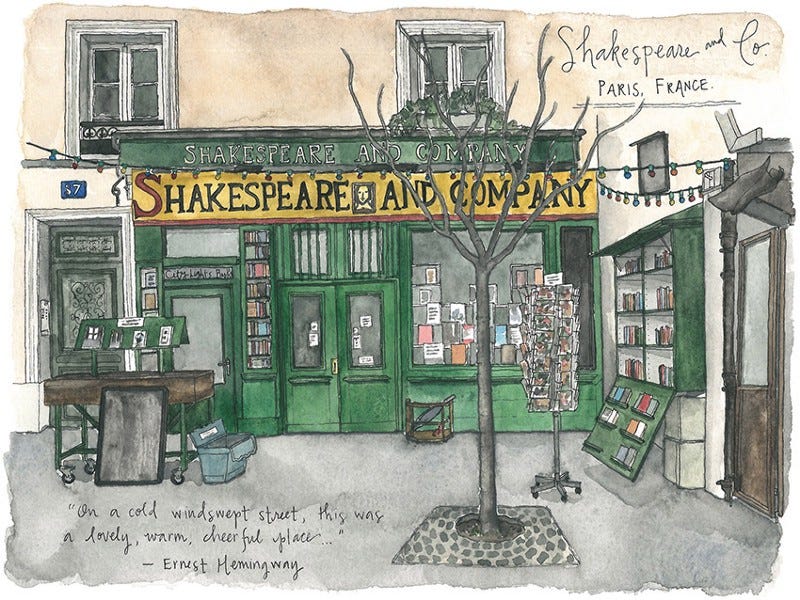
The first bookstore was opened by formidable woman Sylvia Beach, an American, on 19 November 1919, at 8 rue Dupuytren.
During the 1920s, Beach’s shop was a gathering place for many then-aspiring writers such as Ezra Pound, Ernest Hemingway, Djuna Barnes, James Joyce and Ford Madox Ford. It was closed in 1941 during the German occupation of Paris and never re-opened.
Sylvia Beach's Shakespeare and Company, 1919-1941
Sylvia Beach, an American, founded the first Shakespeare and Company in 1919. Located in Paris at 12 rue de l'Odéon…shakespeareandcompany.com
The second bookstore was opened in 1951 by George Whitman, it was originally called “Le Mistral,” but was renamed to “Shakespeare and Company” in 1964 in tribute to Sylvia Beach’s store and on the 400th anniversary of William Shakespeare’s birth. Today, it continues to serve as a purveyor of new and second-hand books, as an antiquarian bookseller, and as a free reading library open to the public.
George Whitman, Paris Bookseller and Cultural Beacon, Is Dead at 98 (Published 2011)
PARIS - George Whitman, the American-born owner of Shakespeare & Company, a fabled English-language bookstore on the…www.nytimes.com
About George Whitman
George Whitman, an American, founded Shakespeare and Company at 37 rue de la Bûcherie, Paris, in 1951. Nicknamed the…shakespeareandcompany.com
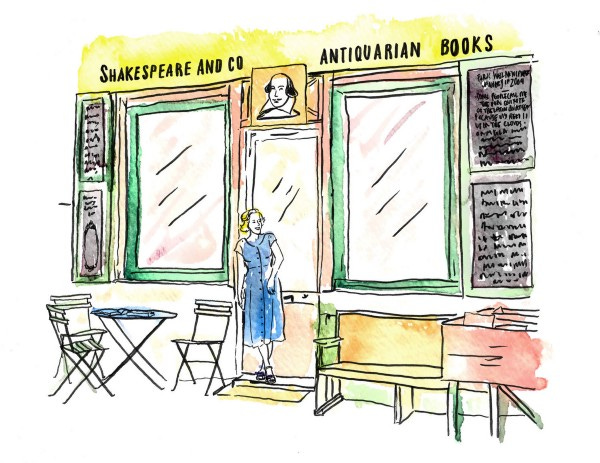
Furthermore, the bookstore houses aspiring writers in exchange for their helping out around the bookstore. Since the shop opened in 1951, more than 30,000 people have slept in the beds found tucked between bookshelves.
ABOUT Sylvia Whitman
In 2002, at the age of twenty-one, Sylvia Whitman, George’s only child, returned to spend time with her father in his kingdom of books. Not long after, George put her in charge.
Today Sylvia continues to own and run the shop, along with her partner (in life and business), David Delannet.
Sylvia breathed freshness, energy and new life into the shop. She’s had many creative ventures over the years — she’s launched a festival, opened a café, grown the bookshop and created a contest for unpublished novellas — but the beating heart of everything is, of course, the beautiful bookshop itself.
FestivalandCo, The Shakespeare and Company Literary Festival
Literary festival in Paris by Shakespeare and cowww.festivalandco.com
Since it first opened it has been a haven for everyone who’s walked through its doors. There’s been many descriptions of it over the years: Henry Miller called it ‘a wonderland of books’, James Baldwin described it as ‘The old curiosity shop’ and Anaïs Nin wrote it was ‘a house of gentle warmth, with walls of books and tea ceremonies’.

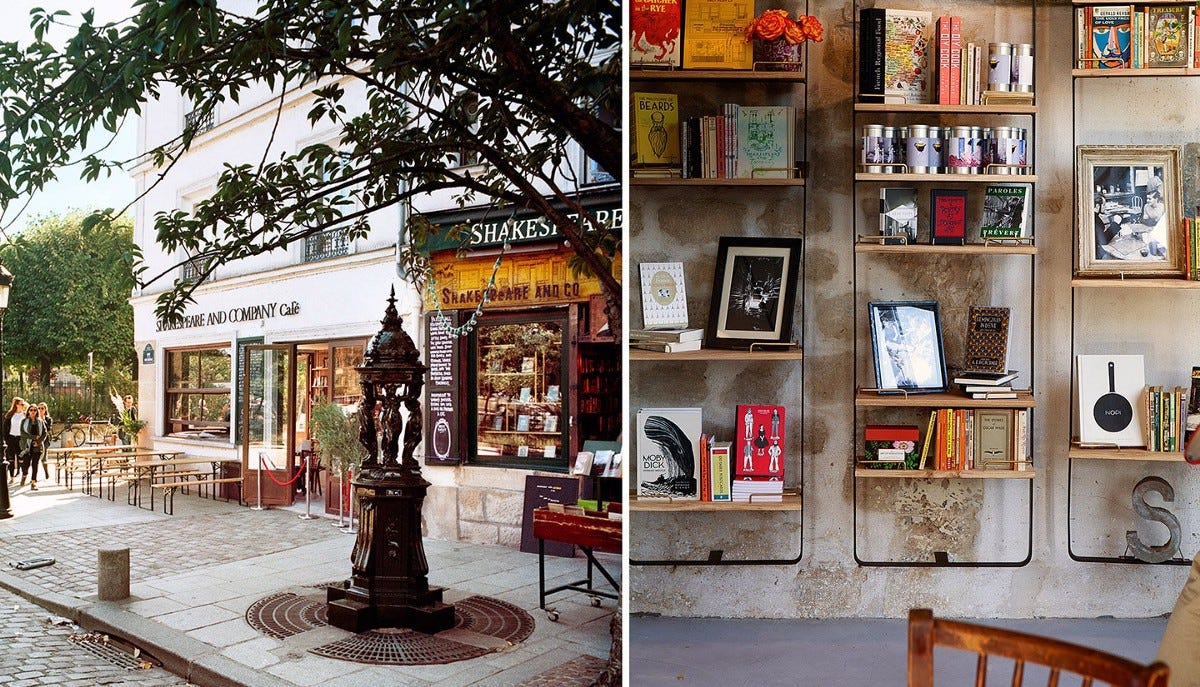
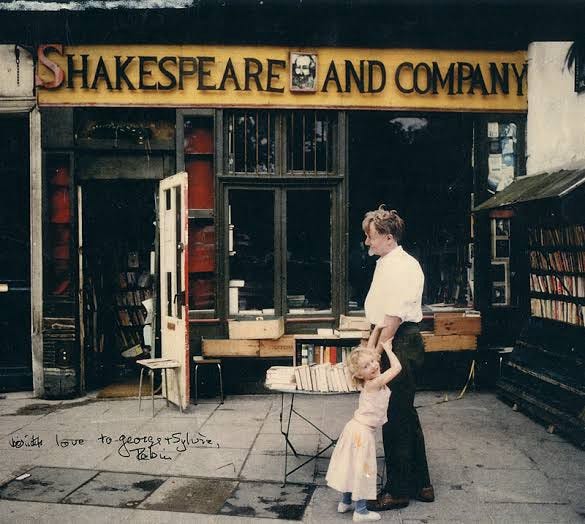
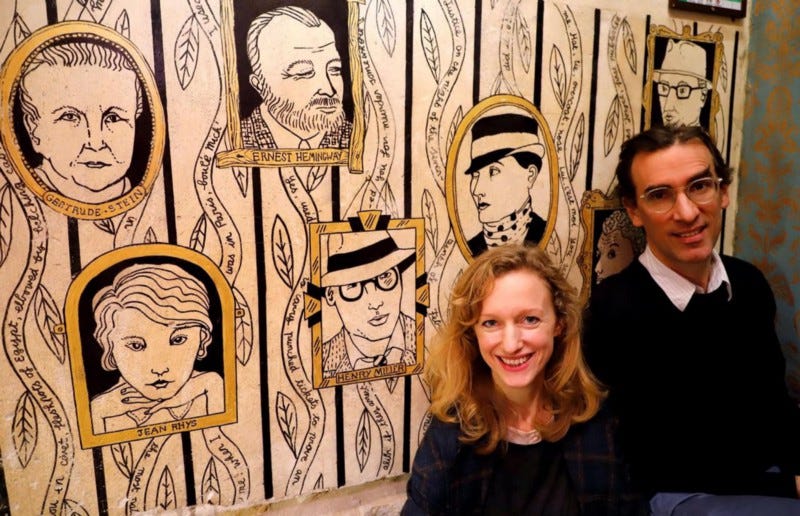
Before the pandemic, Shakespeare and Company hosted free weekly events — open to the public and available on the shop’s podcast — welcoming writers such as Zadie Smith, Don DeLillo, Carol Ann Duffy, Colson Whitehead, Leïla Slimani, Rachel Cusk, George Saunders, and Jeanette Winterson.

I had a wonderful & insightful conversation and Q&A session with Sylvia who is incredibly warm, friendly and cheerful about Bookselling Business Ecosystem and how independent bookstore can be resilient in an uncertain business and economic environment.
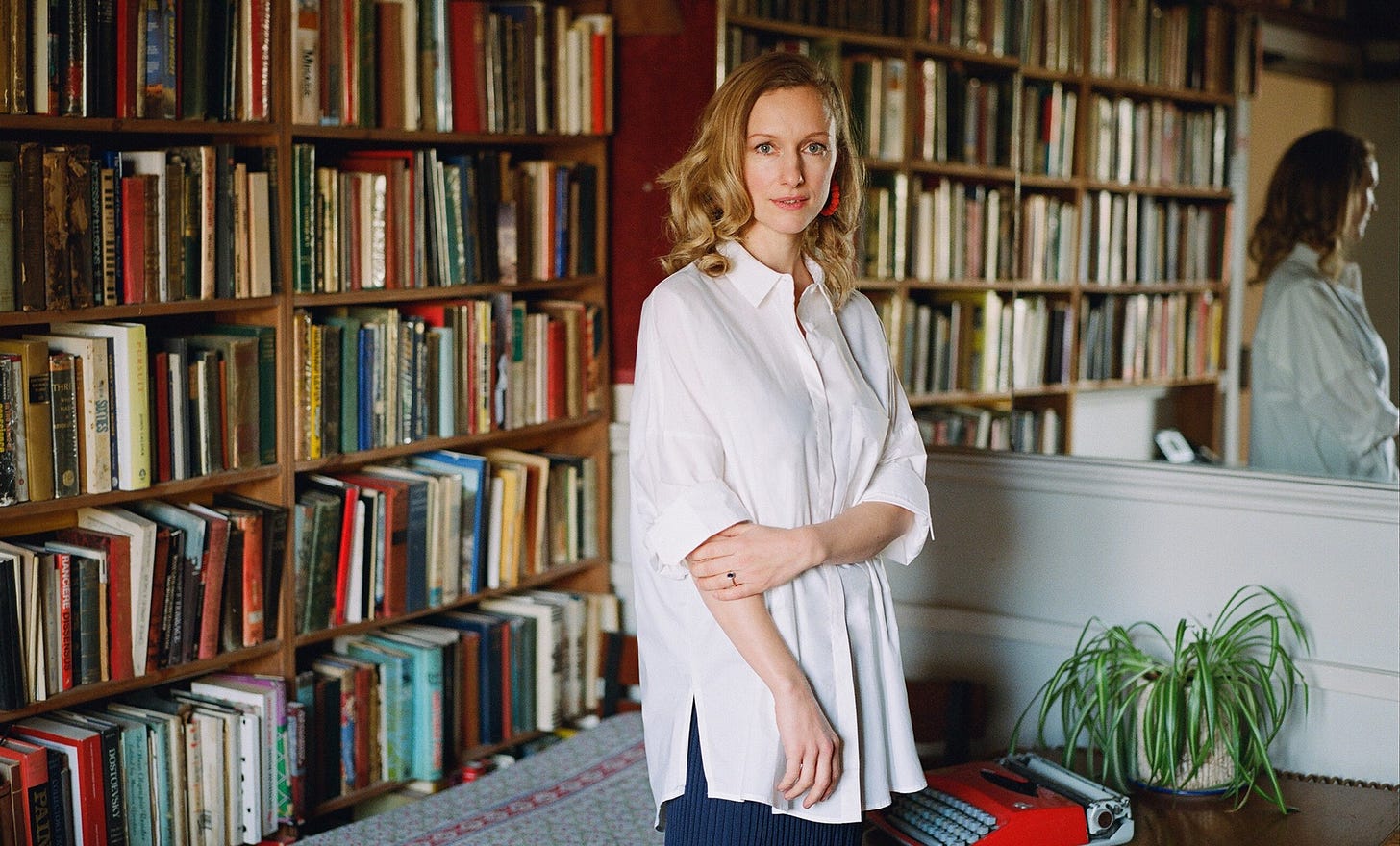
Excerpts from the Interview :-
Q1) Shakespeare and Company, the legendary English Independent Bookstore across from the Notre Dame. It is more than just a bookshop. It is that rare entity that understands the magic of the feel of a book, the smell of old paper, the delight of discovering a gem. It is in equal parts a bookshop, library, sanctuary and rendezvous.
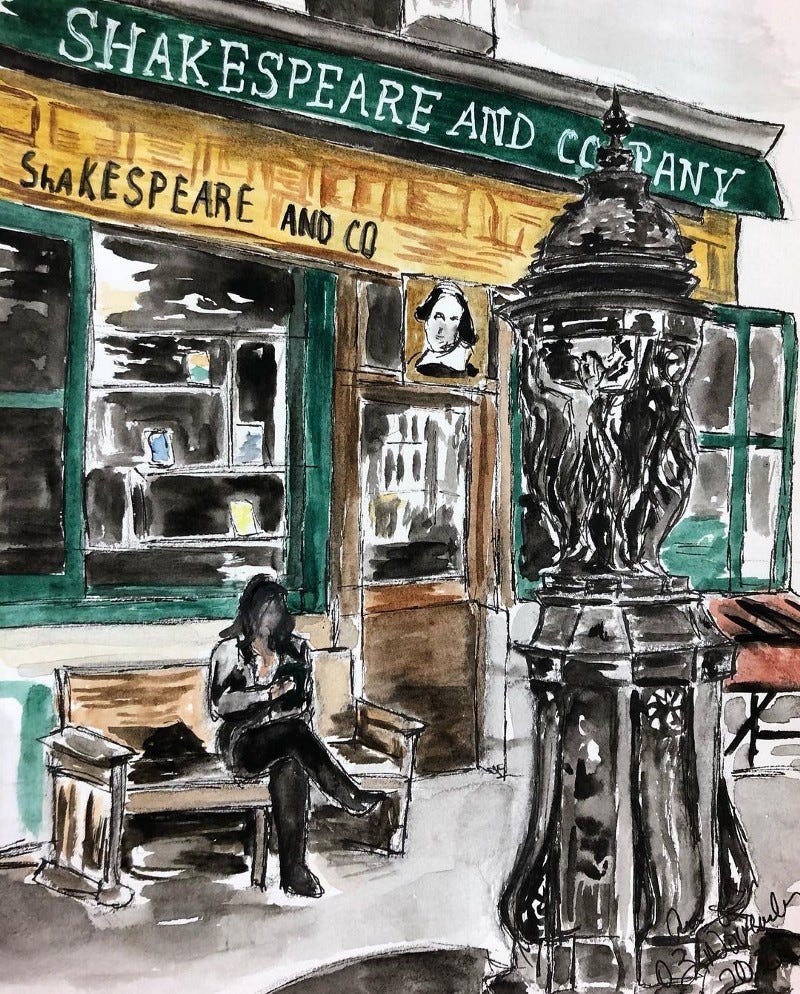
Tell our readers here about its rich and organic history? When and how the bookshop came into existence? How did it become such an institution? What was the mission and vision that Sylvia Beach/George Whitman had projected when they both founded their own version of the bookshop?
A Brief History of a Parisian Bookstore
I created this bookstore like a man would write a novel, building each room like a chapter, and I like people to open…shakespeareandcompany.com
Sylvia : Shakespeare and Company was opened on rue de la Bûcherie in 1951 by my father, George Whitman. It was given its name by Sylvia Beach, who called the shop the “spiritual successor” to her own. Beach’s bookstore, on rue de l’Odéon (1919–1941), had been a gathering place for the great expat writers of the time, including Hemingway, Stein, Fitzgerald, Eliot, and Pound. And it was Beach who first published James Joyce’s Ulysses, when no one else dared.
George admired and wished to continue the atmosphere and service provided by both Sylvia Beach and Adrienne Monnier. (Monnier had founded La Maison des Amis des Livres, the French-language bookshop across from Beach’s; she was one of the first female bookshop owners in all of France).
Adrienne Monnier
Adrienne Monnier (26 April 1892 - 19 June 1955) was a French bookseller, writer, and publisher, and an influential…en.wikipedia.org
The ideal bookshop was a place between work and home, somewhere to stop and think, to meet and discuss, a bridge between French and Anglophone writers and culture, and even a place to eat and sleep when needed. It’s this vision that has been our beacon throughout the decades.
After its opening, George’s bookstore quickly became a centre for Anglophone literary life. James Baldwin, William Burroughs, Anaïs Nin, Allen Ginsberg, Richard Wright, Julio Cortázar, and Henry Miller were early visitors. And — from the first day — writers, artists, and intellectuals were invited to sleep for free among the shelves. Since then, an estimated 30,000 people have stayed in the bookshop. These guests are called Tumbleweeds after the rootless, rolling plants that “drift in and out with the winds of chance,” as George described.
Over the years, the shop grew from one long, narrow room on the ground floor to the labyrinth of books and nooks readers know today.
George said, “I created this bookstore like a man would write a novel, building each room like a chapter, and I like people to open the door the way they open a book, a book that leads into a magic world in their imaginations.”
Q2) Shakespeare and Company is a bookstore unlike any other. It is a historical landmark or a remarkable institution, a living testament to the Lost Generation and Beatnik generation. How do these things influence the curation or selection of books for the store?
What considerations does the team of bibliophiles at the bookshop keep in mind while curating the bookstore? Do they always prefer to have Best Seller on the shelves? Or do they provide a platform to an under rated authors as well whose writing is out of the box and phenomenal but doesn’t have the means to distribute his/her book in the market or doesn’t go through the conventional publishing route.
Sylvia : We have plenty of Lost and Beat Generations writers in stock, along with French and English classics, as customers often come in looking for specific titles. But if these were all we had on our shelves, the bookshop might risk feeling like a museum. So we prominently display the latest releases, especially those from smaller publishers, and we aim to offer a diversity of contemporary voices and subject matters. It’s so exciting to unbox new arrivals, to hold up a recently published book, wondering whether it might become a new classic.
Along with getting recommendations from our knowledgeable booksellers, I find it essential to discover what our visitors are reading. We are lucky to welcome readers from around the globe, so we get to hear about a great cross-section of world literature, sometimes before it’s even translated into English. Our stock is overseen by the shop’s head buyer, Linda. She has been with us for more than ten years and does a beautiful job keeping our selection vibrant and in balance.
Q3) When did you fall in love with books and the bookshop? What made you decide to be a bookseller? Was there a ‘eureka moment’ in your life when you knew you loved books and wanted to point your career in that direction? How would you describe your life as a bookseller living in Paris?
Sylvia : When I was younger, I found books quite intimidating. Having grown up in a bookstore, I felt a pressure to have read everything. So my first true connection to words and storytelling came through the theatre. I loved Oscar Wilde, Arthur Miller, Tom Stoppard, and the process of bringing their words to life on the stage. One of the first events I put on, after returning to Shakespeare and Company when I was twenty-one, was a production of A Midsummer Night’s Dream. It took place on the sidewalk in front of the shop. I gathered the booksellers and Tumbleweeds, and we just put on the play. It was haphazard, of course, but appropriately magical and dream-like. From this time, my love for Paris and the bookstore and books all blossomed together quite quickly and naturally. Literary culture is revered in France, and Paris simply evokes poetry. It’s a wonderful place to be a bookseller. I recently read Rebecca Solnit’s Wanderlust, which has this lovely description of Paris: “Everything — houses, bridges — same sandy gray so that the city seems like a single construction of inconceivable complexity, a sort of coral reef of high culture.”
Q4) What do you think is the role of an independent bookstore, or the role of booksellers at an independent bookstore?
Sylvia : To provide a place that is open, generous, and free from judgement. To celebrate all sorts of ideas, voices, and lives. A place that is not shaped by algorithms, nor dictated by an unknown economic force. It should be a simple place where we booksellers offer readers something to love, simply because we want to share it.
Q5) In what ways Sylvia Beach had inspired you? Any sense of identification :) , since you are named after her
Sylvia : I think of Sylvia Beach every day. “I admire her wit, self-education, practicality, generosity, and her diplomatic grace”. I don’t so much identify with her as draw inspiration from her. She’s a sort of guiding light. It feels as though she set the ground rules, the tone, and the philosophy for this bookshop — perhaps for all independent bookshops! In everything we do, we try to channel that philosophy while, simultaneously, adapting it to the times we live in.
Q6) What’s Shakespeare & Co. bookselling philosophy?
Sylvia : I think immediately of the step that leads up from the bookshop’s entrance to the fiction room. It has the words “Live For Humanity” painted on it, and I always hope that our bookselling philosophy does justice to these words.

I want our shop to be a celebration of lives, a forum for as many voices as possible which — as much as possible — doesn’t prioritize the commercial side of the business.

The poet Breyten Breytenbach once said to me that bookshops could be seen as an embodiment of the “Slow Movement.” A book is slow to write, slow to edit and publish, slow to read. Therefore, bookshops should be places in which we can take our time.

Q7) Shakespeare and Company was more than a place to find feminist writings in a patriarchal world. It became a flame attracting the many moth-like expat writers living in Paris. An unknown young man named Ernest Hemingway found his way to Shakespeare and Company in the early 1920s. Ezra Pound, Gertrude Stein, Mina Loy, F. Scott Fitzgerald, and many other expatriate writers found a haven in Paris with Beach and her store.
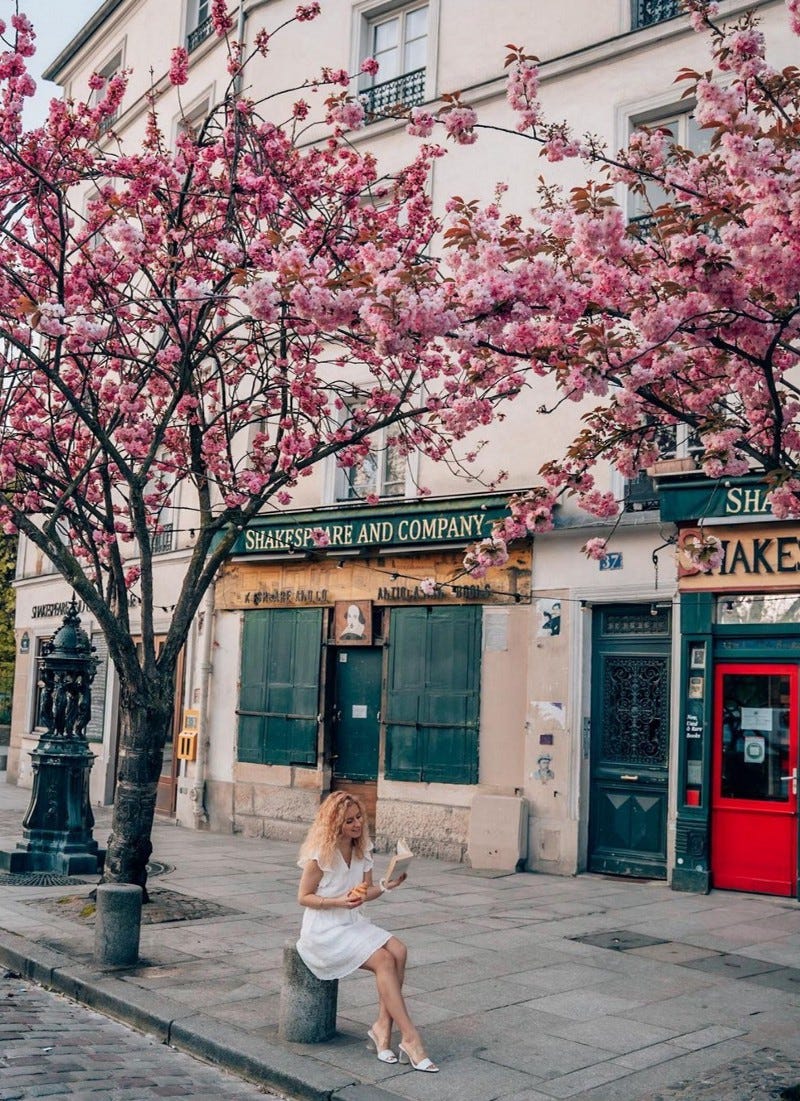
What would you say are your top 3 ultimate Feminist books that you love?
Sylvia : Yes, Sylvia Beach and Adrienne Monnier shared an unconditional love of literature but also of independence. Not only did they create true havens for book-lovers, but they did this as women in a time when such a thing was unheard of in France. The fact that their shops were also lending libraries was important. Books were very expensive at that time, after the first World War, and women in particular didn’t have access to that kind of money.
I can’t choose just three titles, so here’s twice that many . . .
The World’s Wife by Carol Ann Duffy
Invisible Women by Caroline Criado-Perez
A Life’s Work by Rachel Cusk
Why Be Happy When You Could Be Normal? by Jeanette Winterson
A Room of One’s Own by Virginia Woolf
The Very Rich Hours of Adrienne Monnier by Adrienne Monnier
Q8) Can you shed some light for the readers here about the concept of The Tumbleweeds Program. Were there any specific people, any specific Tumbleweeds that really left an impression on you.
About Tumbleweeds
Throughout his life, George Whitman traveled the world as a self-proclaimed "tumbleweed," blowing from place to place…shakespeareandcompany.com
Sylvia : Throughout his twenties and early thirties, my father traveled the world as a self-proclaimed “tumbleweed,” blowing from place to place, sheltered by the grace of strangers. Wishing to repay the generosity he encountered during his journeys, he founded the bookstore with the motto “give what you can, take what you need” and threw open the doors to the many writers, artists, and intellectuals who sought refuge here. In exchange for a bed in the bookshop, Tumbleweeds (as guests came to be called) were asked only to “read a book a day,” help out in the shop for a couple of hours, and write a single-page autobiography for George’s archives. Our shelves are now filled with their autobiographies and stories of romances played out beneath the beams.
A Guide for Writers Planning on Taking Up Residence at Shakespeare and Company in Paris - Craig…
During your stay hold on to the present, because this will never be Paris in the 20s/40s/60s. You'll need to ignore…fivedials.com
I often think of one young man who arrived at the beginning of summer and left three months later. He was from Glasgow in Scotland. He became a favorite of everyone with his kind presence, good humor, and the seemingly countless books in his pocket. When he was leaving, as with all Tumbleweeds, we asked him to write a one-page story of his life. After he had gone, I read it and discovered that the love of his life had died next to him in bed, just one week before his arrival in Paris, taken by a sudden, utterly unexpected heart attack. He had needed to escape, to find a place he could be someone else for a time, and put his grief on hold.
His story has remained with me. It’s a reminder that we can never know what someone might be going through, and that kindness is one of the most important gifts we can give to others, and to ourselves.
undefined
Tumbleweeding Throughout his life, George Whitman traveled the world as a self-proclaimed "tumbleweed," blowing from…shakespeareandcompany.com
I Am Something Of A Tumbleweed | Tin House
I Drifted Into Bookselling "Like many of my compatriots, I am something of a tumbleweed drifting in the wind," George…tinhouse.com
To Home, With Love by Yoyo Chan
On 28th September 2014, the pro-democracy Umbrella Movement broke out in Hong Kong. Former Tumbleweed Yoyo Chan's…blog.shakespeareandcompany.com
I’m very much looking forward to making up the beds again once we’re past the pandemic!
Q9) What was the inspiration behind this book :
This book is one of the first projects in the renewed publishing efforts of Shakespeare and Company under your ownership, right? It has caused quite a stir. Can you tell us a bit about the book? How much research went into giving this book a life? Who were the key contributors?

Sylvia : We’d long wanted to publish a book on the shop’s history — in fact, George took several writing sabbaticals in the ’70s and ’80s to work on one. But, according to him, he never got further than the title, “The Rag & Bone Shop of the Heart.” As you can see, we used that same title for the book we eventually published in 2016. It was four years in the making. First, we had to organize 100 years of archives into chronological order and read everything — and then decide what kind of book we wanted. The end result, edited by Krista Halverson, is 380 color pages, with more than 200 photographs and almost 100 contributors — a collection of stories and remembrances from former Tumbleweeds, visiting writers, poets, booksellers, and more. They include Jim Morrison, Anaïs Nin, Allen Ginsberg, Lawrence Ferlinghetti, Ian Rankin, Jeanette Winterson, and Ethan Hawke, among many others.
Launch of Shakespeare and Company, Paris: A History of the Rag & Bone Shop of The Heart
Join us as we celebrate the worldwide launch of our bookstore's very own memoir…shakespeareandcompany.com
Q10) Is there anything you’d like to say about independent book sellers? It seems like you’ve cracked the code.
Sylvia : That is a very generous thing to say! One aspect of the pandemic: it has really served to clarify what we are, and also what we are not. I think it was Lewis Buzbee in his book about bookshops who said that indie bookshops are a charming combination of solitude and gathering. I’ve been thinking about this a lot recently.
The Yellow-Lighted Bookshop
The Yellow-Lighted Bookshop book. Read 446 reviews from the world's largest community for readers. In The…www.goodreads.com
I adore the network of diverse, independent bookstores and hope it will continue to grow and thrive. One day, I want to travel the world visiting each of these cultural lighthouses, hopping from one unique, personally curated eden of books to the next.
Q11) Any childhood memory you can recall from the bookshop. What was your experience living with the Tumbleweeds? I have read it somewhere that you lived there until you were 10 years old or so. What was it like growing up in that environment?
Sylvia : It was pretty chaotic and very fun, and I met some amazing people. I remember, as a young child, following my father through the bookshop, him rattling his huge set of keys, stepping over sleeping tumbleweeds, singing “Rise and Shine,” the bells of Notre-Dame chiming along, right outside our window. One person in particular whom I spent a lot of time with was Ted Joans. He was a Beat poet who came by the bookshop at noon every day to read The International Herald Tribune. He would often recite this poem to me:
If you should see / a man / walking down a crowded street / talking aloud / to himself / don’t run / in the opposite direction / but run toward him / for he is a POET! / you have NOTHING to fear / from a poet / but the TRUTH
Q12) Do you have favorite books and authors, or a genre that you’d like to share? What are your favorite books to consistently recommend to customers? Is there anything you’d wish readers paid more attention to in the store? A genre? Or an author?
Sylvia : Something I love about being in a bookstore is that you can keep endlessly falling down the rabbit holes of curiosity. One book leads you to another, and that one leads you to another, and so on. All it takes is for a customer or bookseller to enthuse about an author or a lost classic and — hop! — off you head down a new path.
There are so many books I could recommend. A few recent discoveries include: On Connection by Kae Tempest, Atlantis by Carol and Renzo Piano, and Transcendent Kingdom by Yaa Gyasi.
Q13) What sort of activities/workshops and discussion does the bookshop conduct with respect to online or offline events in collaboration with authors and book launches? Tell our readers here about any memorable event or workshop or any interview which happened at the bookshop.
Sylvia : In normal times, we usually put on one event a week, inviting authors from around the world to read from their work and discuss it with our audience. The intimate setting of the bookshop means that readers get to see their favorite writers up close (our stage is only six inches high!) and engage with them on a very human level. We like to programme a mix of writers, from debut poets to literary superstars. So one week you might see Rachel Cusk, Don DeLillo, or Zadie Smith, and the next it could be a writer whose work we absolutely love but whose name isn’t yet widely known (but soon will be!).
There have been so many moving events over the years. It’s difficult to single out just one or two, but I must say having the great John Berger discuss his work only a few years before his passing was very special; the empathy and compassion he displayed moved many of us in the room to tears.
An Evening with John Berger
John Berger has a farmer's hands. Or a carpenter's. Big hands anyway, hewn over five decades living in the remote…blog.shakespeareandcompany.com
Another event that comes to mind was Kae Tempest’s reading in July 2018. Her performance was exquisite, and the event was extra special because it was introduced by Charlotte, the bookshop’s summer intern from a programme we worked on with the incredible British charity Arts Emergency. It was a pure delight to see Charlotte introduce Kae with such confidence and sparkle!
Kate Tempest
In collaboration with [[http://arts-emergency.org/|Arts Emergency]~external], join us for a set from one of the most…shakespeareandcompany.com
Q14) Coffee and books go so well together. So, building a Shakespeare & Co. Café next to the bookshop makes total sense. Has the café acted as a catalyst in maintaining the overall business? How much time a reader spends on an average at a bookstore/café?
Abby. on Instagram: "Shakespeare & Company, Paris.✨"
A guide to my happy place - a must see if you ever visit Paris!www.instagram.com

Sylvia : We had wanted to add a café for years, so when the garage next to the bookshop became available for rent, we leapt at the chance. Our aim was to provide a corner-with-a-view for visitors to enjoy a delicious coffee, tea or cake — and we included a good range of secondhand books to ensure the café had a similar feel to the bookshop. It’s also given us the opportunity to offer healthy, vegetarian alternatives to the neighborhood’s traditional Parisian cafés, and to explore projects like composting (important with all the coffee grounds!) and eco-friendly packaging. Books don’t have an expiration date, so running a café was an entirely new trade for us to learn!
Q15) How does Shakespeare & Company support the independent publishing in the community?
We Support - Shakespeare and Company
INDIE BOOKSHOPS At Shakespeare and Company we value our status as an independent bookstore. Independence gives us…shakespeareandcompany.com
Sylvia : We’re huge fans of independent publishers and make a special effort to stock their books and to promote them in the shop. Often, it’s the indie presses that are prepared and able to take risks on titles that might not typically be considered commercial and, in the pre-pandemic era, we loved to collaborate with them to hold events featuring groups of their authors. We also take books on consignment directly from small publishers and authors who don’t have access to traditional distribution infrastructures.
Q16) There are more than just superficial reasons to like bookstores. First, they provide instant gratification. If you want a book, you can get it immediately. You can hold it in your hand and walk out of the store with it. Another nice feature is the ability to browse — you can wander around, look around, and perhaps find a title that you didn’t know you wanted. In addition, the ambiance of a good bookstore is appealing and valuable. Do you think that independent bookshops play more of a social role than being that of a retailer?

Sylvia : Serendipity: I adore this word and how it applies to bookshops! In her latest book, On Connection, Kae Tempest talks about the importance of coming across a rare edition of Jung’s Red Book in Powell's Books. She writes: “seeing that book and reading that page, I felt myself rediscovered.” Such serendipity feels especially pronounced in shops that sell new, used, and rare titles — even just the juxtaposition of covers can be thrilling, these accidental encounters between books (what my dad called “interesting marriages”). This morning, I placed a stunning secondhand Faber edition of Beckett’s Happy Days next to Winterson’s Why Be Happy When You Could Be Normal?
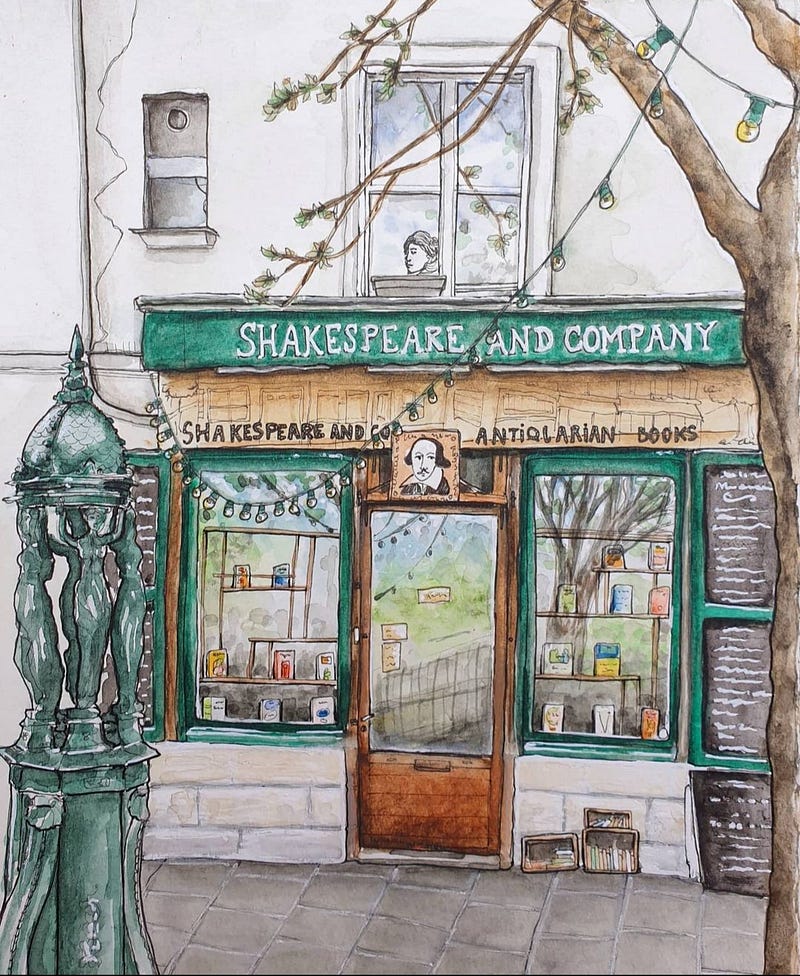
Q17) I had interviewed Bob Eckstein about his Research on Independent Bookstores. The objective of his Book (Footnotes from the World’s Greatest Bookstores) and Research was to raise awareness for independent bookstores. What he had learned after Illustrating 75 Bookstores from Around the World is that how they brought communities or, sometimes, two people together for life. How Shakespeare & Company has cultivated this idealistic atmosphere?
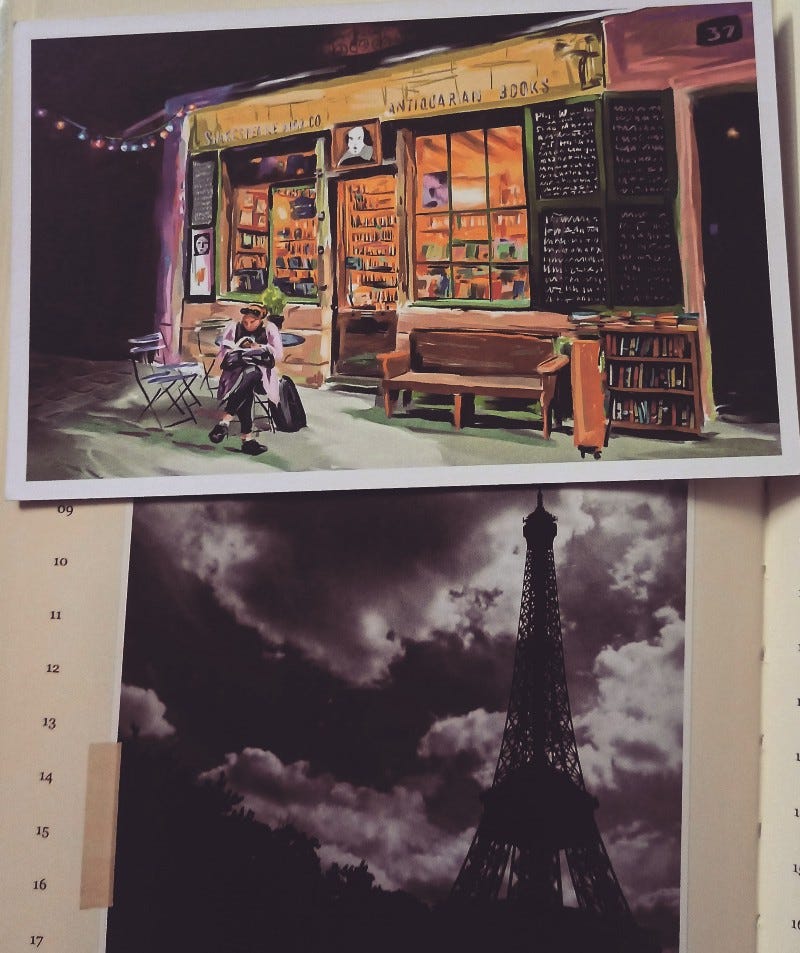
Sylvia : First, through our writers in residence. If you spend a night sleeping next to someone in a bookstore, you are likely to stay in touch with them for the rest of your life!
Also through our events. During an event for his recent book, Dictionary of the Doing, John Freeman said the following, which beautifully encapsulates how I feel about bookshops and how they bring communities together:
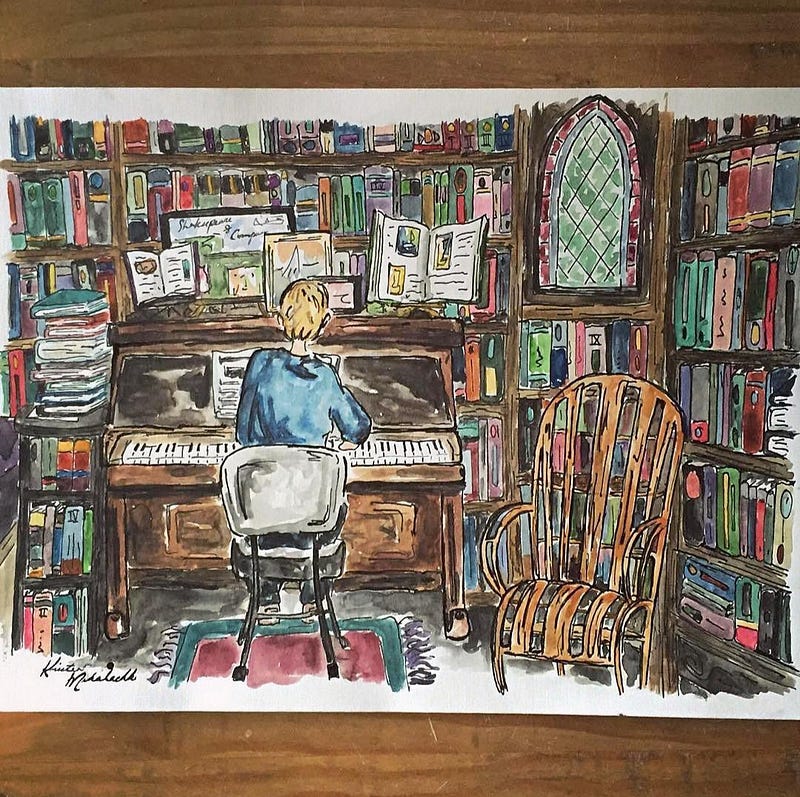
“This is a beautiful space — there’s a sound in the room when I’m not speaking. There’s a vibration that happens when people are in the same space together; we feel that when we enter a space that’s to some degree collective and free and open. That’s why we are drawn here; that’s why people are here instead of at a co-working space looking at something online. We need that togetherness.”
Shakespeare and Company: John Freeman on Dictionary of the Undoing on Apple Podcasts
We were joined by John Freeman to discuss his extraordinary Dictionary of the Undoing, described by Publishers Weekly…podcasts.apple.com
Q18) What was the biggest struggle you faced on a personal level while maintaining a fine line or finding a perfect equilibrium between Sylvia Beach or George Whitman (your father) original ideas and making sure how the bookshop stays relevant with respect to the current era or trend? Did that struggle teach you anything new about yourself as a bookseller, collector, or reader? Do you feel that your father idealism about books is still very much alive at the bookshop? You had big shoes to fill regarding your father’s legacy. What were the expectations from other people?
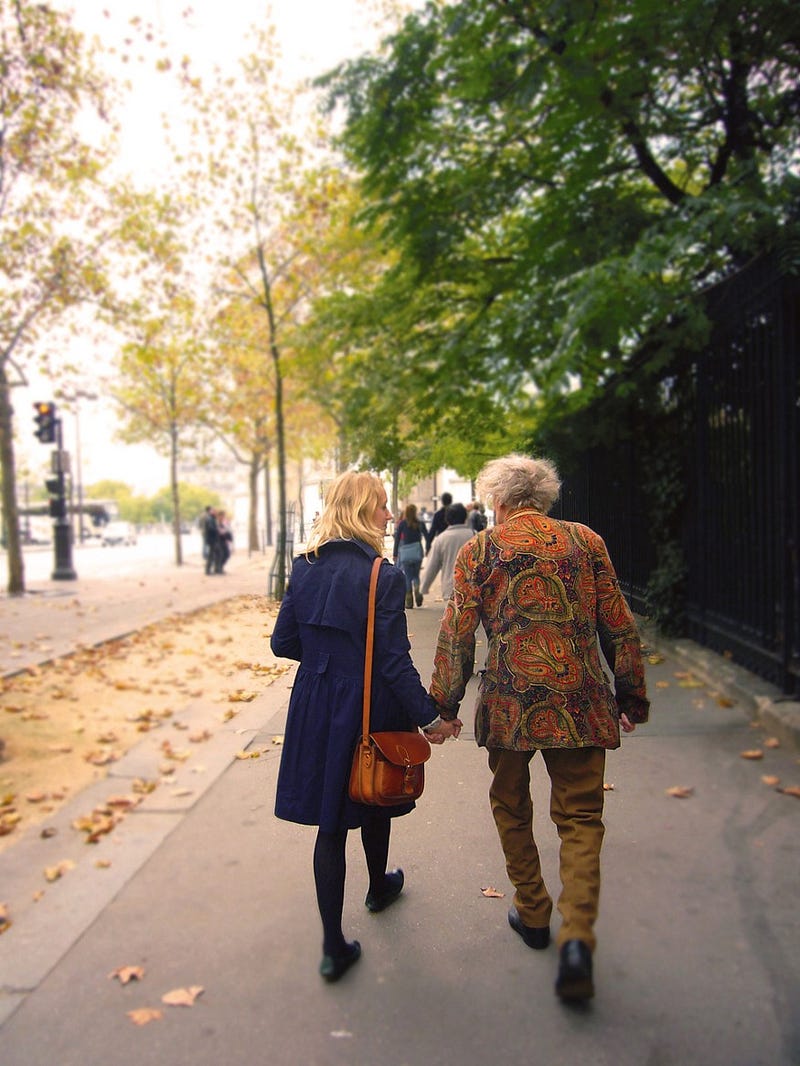
Sylvia : When I was in my twenties, there were a lot of people around telling me how to run the bookshop. They thought I didn’t know what I was doing — probably quite rightly! At that time, I was too busy to think much about people’s expectations: there were so many necessary renovations that my main struggle was just to keep the medieval building that houses the bookshop standing. There wasn’t a phone to call publishers and distributors, let alone a computer to keep track of the inventory. The electrical wiring was held together by sticky tape and the carpet held down with old pancake batter! It’s only been during this second decade of running the bookstore that I’ve been able to step back and take stock of the bigger picture.
I do hope that George’s and Sylvia’s ideals are still very much alive here. “Be Not Inhospitable to Strangers Lest They Be Angels in Disguise,” the shop motto which is written above our library door, is central to our work here.
I also run Shakespeare and Company with my partner, David, who is as devoted to this rag and bone shop as I am. Plus, we have a brilliant team, so I never feel alone.
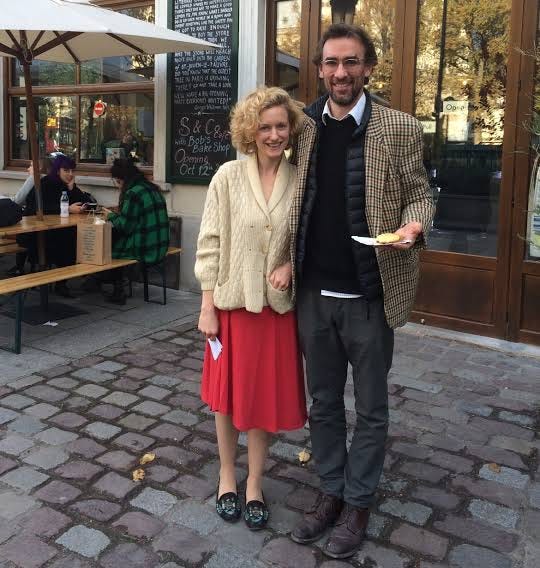
Q19) Coronavirus restrictions now have independent bookstores caught in an agonizing situation: Just when there’s a huge audience looking for something to read, they had to close their doors. Many have found creative ways of dealing with the challenge. Could you tell us about the virtual or digital opportunities during the lockdown, and how far the Bookstore team efforts have been successful?


Sylvia : During the first lockdown, we pretty much shut down our e-commerce activity in order to stand in solidarity with the French Union of Booksellers; they had discouraged bookshops from selling online so not to penalize those shops who didn’t have e-commerce sites.
A lot of institutions put on brilliant online events during this time, but we felt — for Shakespeare and Company — that our events are so closely connected to the bookshop space itself that it didn’t feel right to stage these elsewhere. When the strict lockdown was lifted, we recorded a couple of podcasts in our library, without an audience of course! One was with the poets Marilyn Hacker and Karthika Naïr, who had been writing Renga to each other throughout the lockdown and who came together at the bookshop to read the poems. The recording is an absolute delight.
Shakespeare and Company: Renga through a Lockdown with Marilyn Hacker and Karthika Naïr on Apple…
We were delighted to welcome Karthika Naïr and Marilyn Hacker back to the bookshop. During lockdown, Marilyn and…podcasts.apple.com
We also put out an interview with Lindsey Tramuta (https://lindseytramuta.com/) discussing her wonderful second book, The New Parisienne, which brilliantly deconstructs and rebuilds the archetype of Parisian womanhood.
"The New Parisienne" | New book by Lindsey Tramuta
"With stunning photographs and inspiring profiles, Lindsey Tramuta tramples the myths and takes us into the lives of…www.thenewparisienne.com
Shakespeare and Company: Lindsey Tramuta on The New Parisienne on Apple Podcasts
We were delighted to be joined by Lindsey Tramuta to discuss her second book The New Parisienne-her fascinating…podcasts.apple.com
In the months after the first lockdown, book sales in the shop were worryingly quiet with so many of our usual visitors unable to travel to France. When the second lockdown was announced, we realized we had to reach out to our friends around the world for support. At first we did this by asking those who were able to buy something from our online store. The response was overwhelming and ended up repeatedly crashing our site!
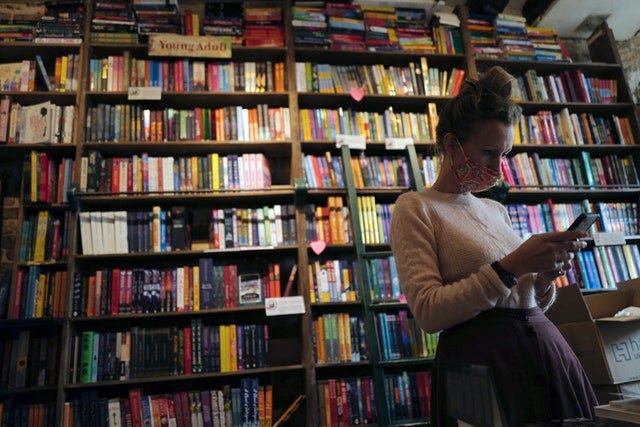
This gave us the impetus to launch another, more sustainable way for people to help. “Friends of Shakespeare and Company” [https://friendsofshakespeareandcompany.com/] is a membership programme that allows people, wherever they are in the world, to support the bookshop financially and spiritually. In exchange, we will create exclusive content for them throughout next year — a mix of video, audio, and new writing — such as a recorded conversation with a celebrated author, a behind-the-scenes tour of the bookshop, an essay from a renowned writer, and a short story read by a much-loved actor.
Plus, there’s an online book club and other treats, depending on the level at which people join. The programme was given an unexpected boost when the writers Dave Eggers and Neil Gaiman offered to sketch artwork for anyone who donated €500 or more.

Q20) The book world was facing problems even before this pandemic. While there has been a resurgence of independent booksellers in the last few years, only one- third of independent bookstores were profitable prior to this crisis. I personally do not want to live in a world where Amazon is the only bookseller, squeezing profits, gouging authors and deciding for you, what you like. What radical and fresh change can we expect from Shakespeare & Co. in future in these lines?

Sylvia : I have learnt so much in the past months. What an independent bookstore offers, the importance of human contact, what we need to do to improve the experience book-lovers have with us, both in-store and online. Most importantly, I have been reminded that having the opportunity and the space to create a community around books is sacred, and much needed.
Bookstore - Shakespeare and Company
undefinedshakespeareandcompany.com
A company like Amazon seems to be tailor-made for a global pandemic (indeed it has thrived these past months). While I recognize they provide an important service to some, I really hope we can transition to an economy to which everyone contributes equally, in which social needs are considered before profit, and in which small businesses can thrive in an eclectic landscape. I do appreciate living in France where steps are being taken to question the size, turnover, growth and dominance of Amazon.
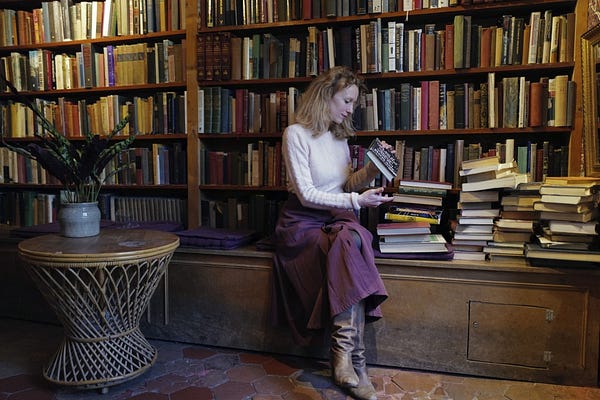
Rather than being encouraged to shop or communicate through online chatbots, it seems critical (especially now) that libraries, youth centres, and other free communal spaces are made available. In her new book, The Lonely Century, Noreena Hertz states that “such places are not only where we come together, but also where we learn how to do so, places where we practice civility and also democracy, in its inclusive form, by learning how to peacefully co-exist with people different to us and how to manage different points of view. Without such spaces that bring us together it’s inevitable that we will pull ever further apart.”
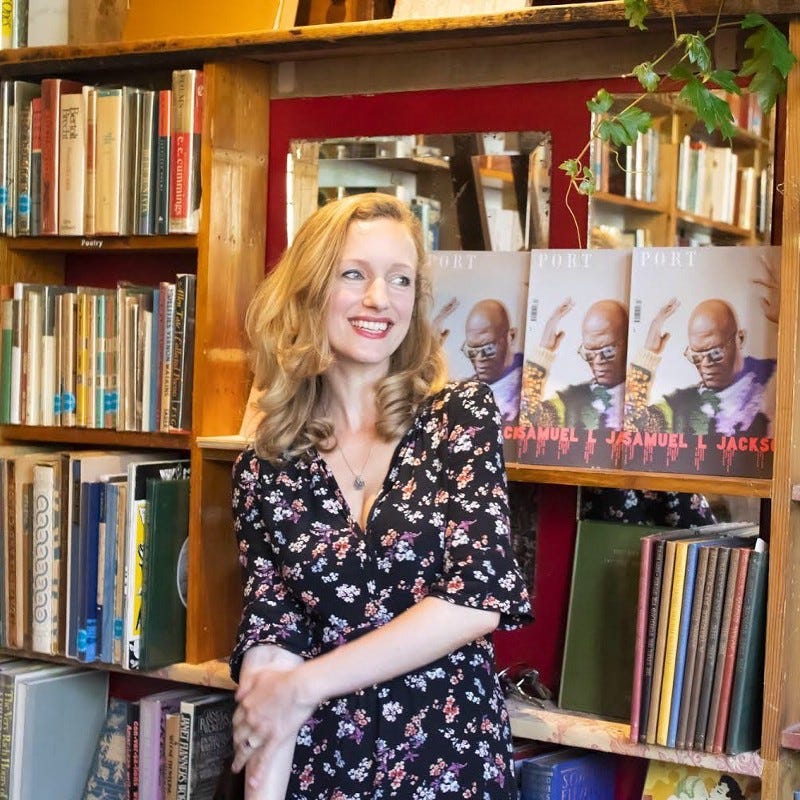
Thank you all for reading and a big thanks to Sylvia Whitman for collaborating in today’s post!
It’s a pleasure!
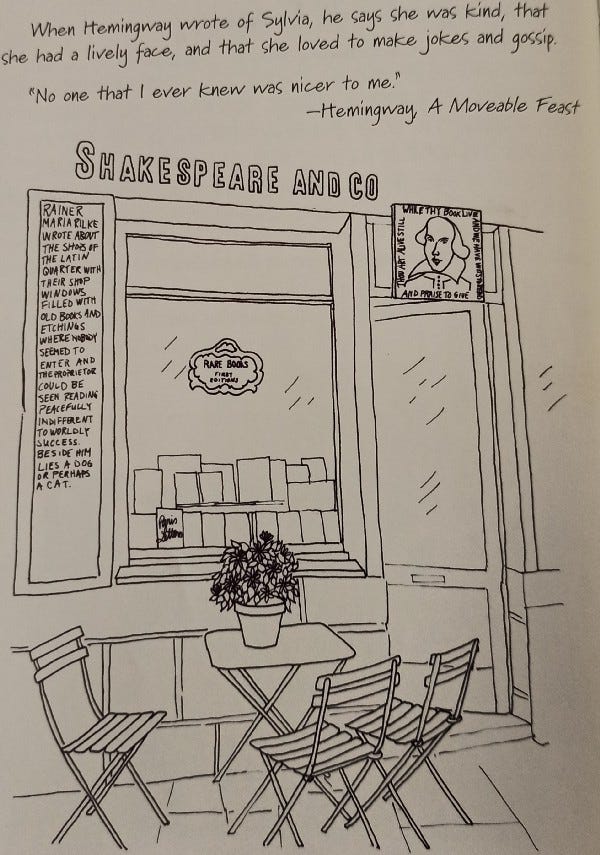
To all my followers or readers who are reading this I hope that this interview was able to casts its magic on you, that it inspired you to everyday kindnesses , to give what you can , take what you need , to read , to write , to carry with you — wherever you may go- this home for literary wanderers , this place where a lader starts , this rag and bone of the heart.
If any of my readers here , wish to know more about this fascinating independent bookstore and their undying spirit with respect to the books. Do open the links mentioned below . They have a wonderful informative , articulated and well-curated website. It has all the essential details about the upcoming author events as well as their latest books subscription offerings!
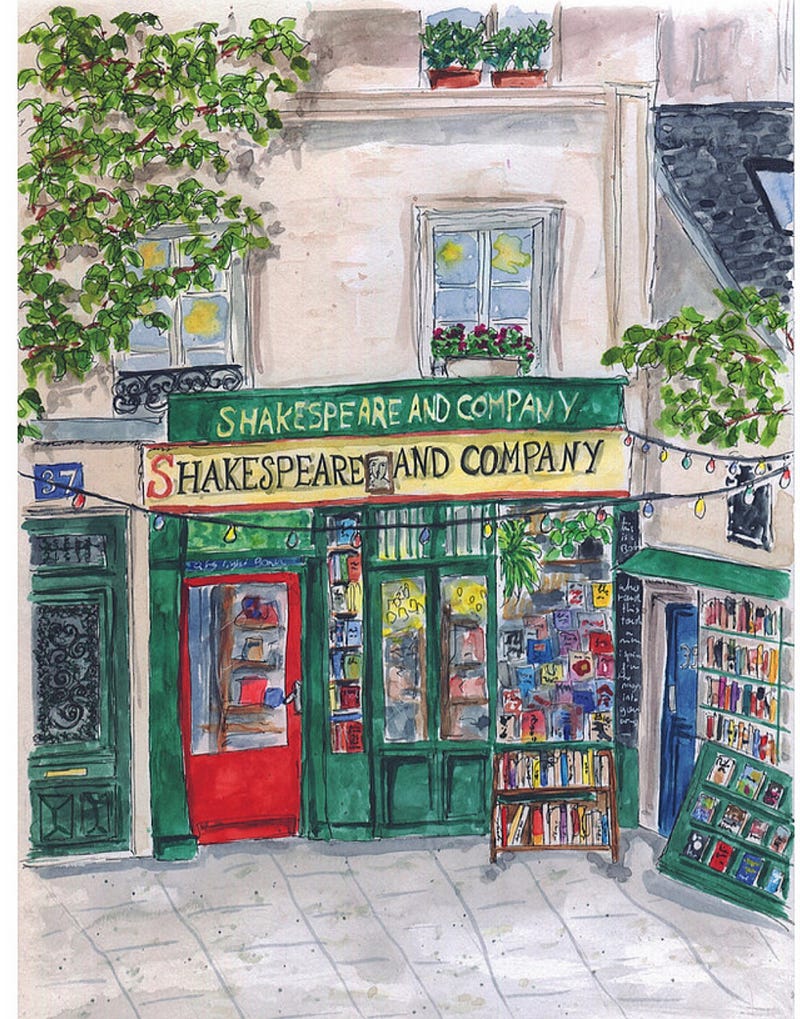
Website : https://shakespeareandcompany.com/
Membership to support the Bookshop : https://friendsofshakespeareandcompany.com/
Facebook : https://www.facebook.com/shakespeareandcoparis/
Instagram : https://www.instagram.com/shakespeareandcoparis/
Tumblr : https://shakespeare-and-companyparis.tumblr.com/
Twitter : https://twitter.com/Shakespeare_Co
Youtube Channel : https://www.youtube.com/c/Shakespeareandcompanybookshop
Upcoming Events : https://shakespeareandcompany.com/21/upcoming-events/category/21/upcoming-events




